Now, with Donald Trump back in the White House, we face the most dangerous form of capital’s dominance yet: a fusion of political power and personal enrichment that corrodes both democracy and markets.
This is not merely a return to a pro-business agenda or deregulation. It is the full flowering of crony capitalism — a system where loyalty to the leader is rewarded with contracts, immunity, and influence, and where state power is wielded in service of Trump and his obsessions.
Trumpism is not about building a strong state or a coherent political vision. It’s about building a network of loyalists who profit from proximity to the president. In that sense, it closely resembles the system Vladimir Putin has built in Russia — one where oligarchs thrive not because of free competition or innovation, but because of their personal loyalty to the regime.
In the face of this creeping Putinism, the defense of democracy cannot be left to institutions alone. They are already under siege — from courts packed with loyalists to agencies purged of dissent. The true counterweight must come from the people themselves. Democracy is not self-executing. It lives only when citizens insist that it does.
If Americans still believe in government of, by, and for the people, then it’s time to reassert the primacy of democracy — before it’s too late.
That means more than voting. It means organizing, speaking out, and yes — peacefully protesting. It means standing in the streets, writing to editors, showing up at school boards and town halls, and refusing to accept a government that serves money over people. And one man over the Constitution. This is not about left or right. It is about whether public life will be shaped by democratic debate or sold off to the highest bidder.
As citizens we must act together, regardless of party and organize a movement to work in every House District to defeat any member who stands with Trump against us. We must make Trump’s supporters in our House fear defeat at our hands in the General Election more than they fear Trump and his MAGA base in the Primary Election. We must rise in numbers that none can mistake as anything other than the People’s House being returned squarely to the hands of the people, by the people. And elect a House for the people that acts immediately to stop Trump at every turn in our name.
A revolt for the ages that would make our founders proud and secure our democracy for our children’s future.
If we want democracy to survive, we must act like citizens, not subjects. We must remind the world — and ourselves — that in America, power still belongs to the people.
That is the fight we are in and the fight we must win.
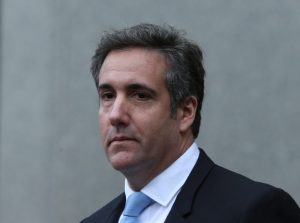 Meidas Touch Network, Commentary: One Ruling Won’t Stop the
Meidas Touch Network, Commentary: One Ruling Won’t Stop the  Takeover, Michael Cohen (above, best-selling author, commentator and former Trump personal attorney), May 29, 2025. The court checked Trump’s tariff overreach; but his war on co-equal power is just beginning. This isn’t trade policy; it’s a test run for dismantling democracy, one branch at a time.
Takeover, Michael Cohen (above, best-selling author, commentator and former Trump personal attorney), May 29, 2025. The court checked Trump’s tariff overreach; but his war on co-equal power is just beginning. This isn’t trade policy; it’s a test run for dismantling democracy, one branch at a time.
In a much-needed moment of clarity and constitutional courage, the Court of International Trade actually did its damn job; ruling that President Trump’s unilateral imposition of sweeping global tariffs was not just illegal, but flat-out unconstitutional.
You heard that right. The emperor of impulsiveness, the high priest of petty retribution, has been told “No.” And if there’s one thing I know Trump despises more than a mirror that reflects reality, it’s being told he’s not above the law.
So, let’s be clear: this wasn’t just some misguided economic policy cooked up at Mar-a-Lago over Big Macs and Diet Cokes. This was a shakedown. A mafia move wrapped in our flag. A strongman’s attempt to bully the world into paying tribute, and when the money didn’t come fast enough, he made them kiss the ring for tariff “waivers.”

Donald J. Trump, center, in a promotional photo from his “Apprentice” series of TV and cable shows.
And just like that, multinationals and entire nations found themselves playing The Apprentice: Global Edition, where the only prize was avoiding economic disaster.
The court’s ruling was scathing, unflinching, and patriotic. They affirmed what the Constitution has made clear since 1787: The power to impose tariffs, to regulate international commerce, rests with Congress. Not with one man. Not with a wannabe despot who governs by tweet and temper.
Think about this: on Monday he slaps on a 150% tariff like he’s imposing penalties on a contestant who forgot their lines; Tuesday, he walks it back to 20% because—surprise—someone with actual knowledge whispered in his ear that maybe, just maybe, this isn’t how global markets work. By Friday? Well… no one knows. Not even him.
But Trump doesn’t care about process. He doesn’t even care about results. He cares about domination. Optics. Control. That’s what the tariffs were always about: leveraging fear to gain compliance. If he could force corporations to beg for exemptions, he could show them who’s boss. If he could make foreign governments bow, he could pretend to be the great negotiator. Except he wasn’t negotiating. He was extorting. And the court just called his bluff—BIGLY!
Now here’s the part that should really keep you up at night: What’s he going to do about it?
Because if you think this man—this ego wrapped in flesh—takes kindly to limits on his power, you haven’t been paying attention. Trump is allergic to accountability. The judiciary? A nuisance. Congress? A sideshow. Checks and balances? That’s for suckers and losers.
He doesn’t just want to bend the Constitution; he wants to rewrite it in gold leaf with his name stamped at the top like a Trump University diploma.This ruling isn’t going to stop him. It’s going to provoke him.

Meidas Touch Network, Commentary: Trump Declares Divine Mission and Infallibility in Meme Posts, J.D. Wolf, May 29, 2025. Trump about  himself: “He’s on a mission from God.”
himself: “He’s on a mission from God.”
On Wednesday night, Trump posted two memes to his Truth Social account. In one image, a  tylized photo shows Trump walking down an empty street beneath the caption: He’s on a mission from God & nothing can stop what’s coming.”Trump
tylized photo shows Trump walking down an empty street beneath the caption: He’s on a mission from God & nothing can stop what’s coming.”Trump
Behind him looms a cartoon of Pepe the Frog, a meme (or its variant at left) used by far-right, QAnon, and white nationalist  online communities. The phrase “nothing can stop what’s coming” is a well-known QAnon slogan, used to invoke a coming reckoning or prophetic judgment.
online communities. The phrase “nothing can stop what’s coming” is a well-known QAnon slogan, used to invoke a coming reckoning or prophetic judgment.
The second post featured a mock billboard emblazoned with Trump’s portrait and the statement: “President Trump was right about everything.”
Taken together, the memes portray Trump not just as a political figure but as a divinely sanctioned force of destiny.
This type of messaging has become increasingly common in his social media presence, blurring the line between political propaganda and religious zeal. By amplifying this imagery, Trump continues to suggest he is both infallible and an inevitable, savior-figure.

A federal judge in Boston said on Thursday that she would temporarily block President Trump’s effort to prevent Harvard from enrolling international students, part of the administration’s all-out battle to undermine the university’s finances and global influence.
The judge’s decision was a victory for Harvard, at least for now, in its ongoing confrontation with the White House, which has already seen the university stripped of billions of dollars in federal funding.
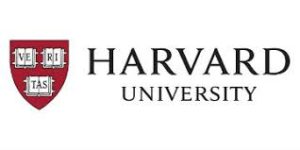 The result came as 9,000 Harvard students were gathered in Harvard Yard to receive their diplomas, in a spirited graduation ceremony filled with symbols of protest against Mr. Trump and messages of support for international peers. There were sporadic cheers as students, faculty and families learned of the judge’s ruling.
The result came as 9,000 Harvard students were gathered in Harvard Yard to receive their diplomas, in a spirited graduation ceremony filled with symbols of protest against Mr. Trump and messages of support for international peers. There were sporadic cheers as students, faculty and families learned of the judge’s ruling.
Harvard’s lawyers argue that the Trump administration is attacking it politically, in violation of the First Amendment, and have said that international students were panicked and seeking to transfer. “I want to maintain the status quo,” Judge Allison D. Burroughs said in the hearing on Thursday. “People are terrified.”
The Trump administration continues to seek options for restricting the flow of foreign students into the country. It has described visa holders as “agitators,” and President Trump has argued that more of their admissions spots should go to Americans.
The administration stepped up its effort to restrict foreign students across higher education late Wednesday, with an announcement by the secretary of state, Marco Rubio, that officials would begin to “aggressively revoke” the visas of some Chinese students.
Here’s what else to know:
- Political target: The administration has accused Harvard of liberal bias, violating the Supreme Court ban on affirmative action and allowing antisemitic behavior. Harvard’s lawyers argued in court — using the president’s own words and social media posts — that the institution is being politically targeted in violation of the First Amendment. Here’s an overview of the legal fight.
- Funding fight: The Trump administration has frozen more than $3 billion in federal funding to Harvard, and Mr. Trump has said he would like to revoke the university’s tax-exempt status. This week the administration said it would cancel the federal government’s remaining contracts with Harvard, worth an estimated $100 million.
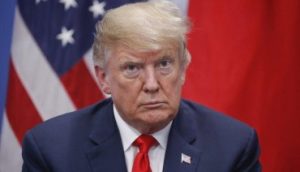 Letters from an American, Historical Commentary: May 28 [Court Blocks Trump Tariffs; Trump Pardons Trump-Friendly Convicts],
Letters from an American, Historical Commentary: May 28 [Court Blocks Trump Tariffs; Trump Pardons Trump-Friendly Convicts],  Heather Cox Richardson, right, May 25, 2025. Judges continue to decide cases against Trump, with a three-judge panel at the U.S. Court of International Trade ruling today that President Donald J. Trump’s sweeping “Liberation Day” tariffs are illegal.
Heather Cox Richardson, right, May 25, 2025. Judges continue to decide cases against Trump, with a three-judge panel at the U.S. Court of International Trade ruling today that President Donald J. Trump’s sweeping “Liberation Day” tariffs are illegal.
The judges, one appointed by President Ronald Reagan, one by President Barack Obama, and one by Trump himself, noted that the U.S. Constitution gives exclusively to Congress the power to impose tariffs. In 1977, Congress passed the International Emergency Economic Powers Act, often abbreviated as IEEPA, delegating to the president the power to adjust tariffs in times of national emergency, but Trump has used that power far beyond what the Constitution will permit.
Since he took office on January 20, 2025, the judges noted, Trump “has declared several national emergencies and imposed various tariffs in response.” But the IEEPA has “meaningful limits,” the court writes, and “an unlimited delegation of tariff authority would be unconstitutional.” The court blocked all the tariffs Trump imposed under the IEEPA, thus ending Trump’s tariff spree, although the administration will appeal.
“Congress manifestly is not permitted to abdicate or to transfer to other the essential legislative functions with which it is thus vested,” the court writes.
That principle echoes far beyond tariffs, as the impoundment of funds by the “Department of Government Efficiency” takes from Congress the power to pass laws that the executive branch must faithfully execute.
Tariffs were in the news today in another way, too, as Wall Street analysts have begun to talk of “TACO trade,” short for “Trump always chickens out.” The phrase was coined earlier this month by Robert Armstrong of Financial Times and refers to Trump’s habit of threatening extraordinarily high tariffs and then backing down. Armstrong noted that investors have figured out that they can buy stocks cheaply immediately after Trump’s initial tariff announcement and then sell higher when stocks rebound after he changes his mind.
Trump’s tariff machinations — he has moved them more than 50 times since he took office — are also enriching the Trump family. Last week, Trump’s son Eric Trump joined Vietnam’s prime minister Pham Minh Chinh in a groundbreaking ceremony for a $1.5 billion luxury real estate development with three 18-hole golf courses outside the Vietnamese capital of Hanoi.
Vietnam sends more of its exports to the United States than to any other country, and after Trump hit Vietnam with 46% tariffs, top officials in Vietnam ignored the country’s own laws to ink a hurried deal with the Trumps to head the tariffs off. The Trump Organization is also cutting deals in Serbia, Indonesia, and the Middle East.
Trump’s pardons also continue to be in the news.
Today the president granted clemency to 25 people, including former Representative Michael Grimm (R-NY) and  former Connecticut governor John Rowland, both of whom were convicted of tax fraud. Trump also commuted the six federal life sentences of Chicago gang leader Larry Hoover, 74, who was convicted of murder, extortion, money laundering, and drug related offenses, and from prison ran a notorious drug gang that had about 30,000 members across 31 states and brought in an estimated $100 million a year. Hoover still faces what’s left of a 200-year sentence in Illinois for murder.
former Connecticut governor John Rowland, both of whom were convicted of tax fraud. Trump also commuted the six federal life sentences of Chicago gang leader Larry Hoover, 74, who was convicted of murder, extortion, money laundering, and drug related offenses, and from prison ran a notorious drug gang that had about 30,000 members across 31 states and brought in an estimated $100 million a year. Hoover still faces what’s left of a 200-year sentence in Illinois for murder.
While Trump’s pardons of Republicans convicted of tax crimes seem in keeping with his favoring of the wealthy, Trump’s commutation of the sentence of a gang kingpin seems an odd counterpoint to his administration’s stance on undocumented immigrants. Administration officials insist they must be able to deport migrants they allege are gang members even if they have no criminal histories. They can ignore due process, they claim, because of the dangers those individuals present to the American people. And yet Trump has now commuted the sentence of a gang leader convicted of the very sorts of crimes the administration insists justify denying to undocumented immigrants the rights guaranteed by the Constitution.
Hoover’s pardon is reminiscent of Trump’s advice to the right-wing Proud Boys in September 2020 to “stand back and stand by,” as he courted the support of vigilante groups to help him steal the 2020 election. It is in keeping with Trump’s statement that he’s “looking at” pardons for the men convicted of conspiring to kidnap Democratic Michigan governor Gretchen Whitmer.
Federal Legal News Affecting Universities- New York Times, U.S. Will ‘Aggressively’ Revoke Visas of Many Chinese Students, Rubio Says, Edward Wong, May 29, 2025 (print ed.). Secretary of State Marco Rubio said the targeted students would include those with ties to the Chinese Communist Party and those studying in “critical fields.”
- New York Times, Trump Suggests Limit on International Students at Harvard, Michael C. Bender, May 29, 2025 (print ed.).. The school has so far resisted considerable pressure from the Trump administration to enact other policy changes.
- New York Times, Analysis: Harvard Fight Illustrates Trump’s Worldview: If He Attacks, It’s Your Fault, Maggie Haberman, May 29, 2025 (print ed.). Since regaining the White House, President Trump has been fixated on making an example of those who push back against him.
- New York Times, To Win Pardons, Trump Allies Echo His Claims of Political Prosecutions, Kenneth P. Vogel, May 29, 2025 (print ed.). President Trump is increasingly using his clemency powers to undermine Justice Department cases against his supporters.
- New York Times, Trump Pardons Former N.Y. Representative Who Pleaded Guilty to Tax Fraud, Liam Stack and Tyler Pager, May 29, 2025 (print ed.). Michael G. Grimm, a Republican, represented Staten Island and part of Brooklyn from 2011 until he resigned in 2015.
- New York Times, Trump Administration Agrees to Return Guatemalan Man to U.S., Mattathias Schwartz and Hamed Aleaziz, May 29, 2025 (print ed.). A federal judge in Massachusetts had ordered officials to “facilitate” his return. The U.S. is still holding a group of other deportees at a base in Djibouti.
 Kristol, Andrew Egger, Sam Stein, and Jim Swift, May 29, 2025. Despite the furious assaults by the Trump project, some of our institutions are holding. Others are fighting back. Lots of us have had occasion in recent years to quote Robert Frost’s 1961 comment and lament, that “A liberal is a man too broadminded to take his own side in a quarrel.”
Kristol, Andrew Egger, Sam Stein, and Jim Swift, May 29, 2025. Despite the furious assaults by the Trump project, some of our institutions are holding. Others are fighting back. Lots of us have had occasion in recent years to quote Robert Frost’s 1961 comment and lament, that “A liberal is a man too broadminded to take his own side in a quarrel.”
But could things be changing? Aren’t there signs that some liberals, confronted by the present danger of a real and vicious authoritarian threat, are beginning to take their own side? That side is the side of liberalism broadly construed; the side of the principles and practices of a free society.
What are the signs of hope?
In the midst of a complete takeover and weaponization of the executive branch of government by the authoritarians, and the complete collapse into timid passivity of the legislative branch, the third branch (the courts) is at least trying to step up. Yesterday’s unanimous decision from the  Court of International Trade striking down as unlawful Trump’s “Liberation Day” tariffs was the most recent and one of the most striking examples.
Court of International Trade striking down as unlawful Trump’s “Liberation Day” tariffs was the most recent and one of the most striking examples.
We’ll see how that decision fares upon appeal. But the decision was a unanimous one, from a panel consisting of a Reagan, an Obama, and a Trump appointee. As in other cases in areas ranging from tariffs to immigration to executive governance, federal judges appointed by presidents of both parties have done a lot to remind us that we live—or should live—under a Constitution and the rule of law.
The Constitution and the rule of law used to be things we could all agree on.
Yes, there’s plenty to worry about when these cases make it to the Supreme Court, as they seem destined to. But as someone who’s warned that we can’t count on the courts alone to save us—and as someone who still thinks that’s the case—I have to acknowledge that so many federal judges have done their best.
So have some other civic leaders, from outside the government. After an initial near-collapse of many private-sector institutions before the Trump administration, we’re now seeing at least some resistance. Some law firms are fighting the bullying. Some universities, most notably Harvard, are fighting not just for their own rights and interests but for the principles of the rule of law and free society.
During the 2024 campaign, many of us said that democracy—by which we meant liberal democracy—was on the ballot. I believe subsequent events have proven us right. Democracy lost. We have already paid a great price for that defeat. More, perhaps much more, damage will be done. But at least there are those fighting back in defense of liberalism.
Quick Hits:
DANGEROUS IDEAS: There’s saying the quiet part out loud, and then there’s whatever this was from Education Secretary Linda McMahon yesterday: “Universities should continue to be able to do research as long as they’re abiding by the laws and in sync, I think, with the administration and what the administration is trying to accomplish.”
Hear that, Harvard? Are you listening, Johns Hopkins?  MAGA-approved research—into the perils of biological males in girls’ sports, say, or perhaps racial disparities in crime statistics—can carry on with no worries. You wouldn’t want to get crosswise with “what the administration is trying to accomplish,” though. What are you, some sort of commie subversive?
MAGA-approved research—into the perils of biological males in girls’ sports, say, or perhaps racial disparities in crime statistics—can carry on with no worries. You wouldn’t want to get crosswise with “what the administration is trying to accomplish,” though. What are you, some sort of commie subversive?
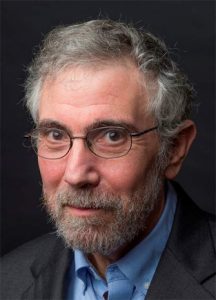 a shock to see someone say it.
a shock to see someone say it.
I’d like to apologize for the crude language I used in my initial reaction to the Court of International Trade ruling basically invalidating Donald Trump’s entire tariff policy.
OK, that’s a lie. Given the circumstances, I was entirely justified in using a bad word. But by gosh and heavens to Betsy, I’ll try to be a bit more decorous today. So here goes.
Punitive tariffs on everyone, including the penguins of uninhabited islands, have been one of the Trump administration’s signature policies, along with epic corruption and abductions by masked men claiming to be federal agents. All of these policies have involved blatant violations of the letter of the law, its spirit, or both. But there has been very little effective pushback.
So it came as a shock yesterday when the United States Court of International Trade suddenly ruled that almost everything Trump has been doing on tariffs is illegal. The Court is clearly right on the merits. But I, like many observers, thought that we were past the point where the merits of cases mattered. It’s gratifying to learn that I was wrong.
For the past 90 years U.S. tariff policy has been set through a process of negotiation with other countries — we’ll cut our tariffs if you cut yours. The purpose of these negotiations is, in large part, to protect ourselves from our own special interests. Once a trade deal has been struck, Representative Bomfog of Middletown can’t insert a special provision benefiting his district’s paperclip factory.
But the rigidity of trade deals can itself be a problem. What if rapid changes in trade create irresistible pressure to do something, but you don’t want to renegotiate everything? So U.S. trade law creates some safety valves — conditions under which presidents can unilaterally impose temporary tariffs that relieve some of the political pressure. The idea was always that presidents, keeping in mind both domestic economic consequences and relations with our allies, would use that discretionary power sparingly.
It was a very clever system, but one utterly unprepared to deal with a president like Donald Trump.
Until he announced the massive “Liberation Day” tariffs on April 2, Trump mainly relied on Section 232 of the 1962 Trade Expansion Act, which empowers the president to impose tariffs when imports “threaten to impair national security.” Such tariffs are supposed to follow a quasi-judicial process in which the Commerce Department investigates the claim, reaches a decision, and the president then chooses whether to act:
May 28 Meidas Touch Network, The Trump Administration Pauses New Student Visa Interviews, Aaron Parnas, May 28, 2025. This could
Meidas Touch Network, The Trump Administration Pauses New Student Visa Interviews, Aaron Parnas, May 28, 2025. This could  have devastating impacts on new enrollment at college campuses.
have devastating impacts on new enrollment at college campuses.
According to newly obtained information from Politico, the Trump administration is considering a major policy shift that would require all foreign students applying to study in the U.S. to undergo social media screening. This would mark a significant expansion of current vetting practices.
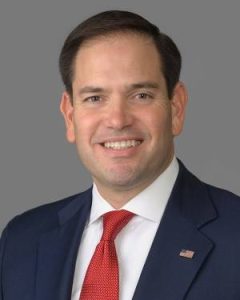 A cable obtained by Politico, dated Tuesday and signed by Secretary of State Marco Rubio, right, instructs U.S. embassies and consulates to temporarily halt scheduling new visa interviews for international students. The pause is intended to give time to prepare for the potential rollout of mandatory social media checks
A cable obtained by Politico, dated Tuesday and signed by Secretary of State Marco Rubio, right, instructs U.S. embassies and consulates to temporarily halt scheduling new visa interviews for international students. The pause is intended to give time to prepare for the potential rollout of mandatory social media checks
If implemented, the plan could create serious delays in processing student visas and have financial consequences for U.S. universities, many of which rely heavily on tuition from international students.
The move could reshape how international students engage with U.S. education, potentially deterring many from applying and further straining the country’s higher education institutions.
Paul Krugman via Substack, Economic Analysis: America Turns Its Back on the World and self-betrayal, Paul Krugman, right, May 28, 2025. Blocking foreign students is an act of self-destruction.
2025. Blocking foreign students is an act of self-destruction.
My wife and I are co-authors of a widely used textbook on the principles of economics, which is revised on a three-year cycle. When a new edition comes out, I normally visit a number of schools that might adopt it, usually giving a big public talk, a smaller technical seminar,  and spending some time with students and faculty.
and spending some time with students and faculty.
So it was that at one point I found myself visiting Texas Tech in Lubbock. Yes, it seemed pretty remote to someone who has spent almost his whole life in the Northeast Corridor, but as usual the overall experience was very positive. And it was also surprisingly cosmopolitan: there were students from many nations. I just checked the numbers, and currently 30 percent of Texas Tech’s graduate students are international.
So it is all across America. Our nation’s ability to attract foreigners to study here is one of our great strengths. Or maybe I should say was one of our strengths.
According to Politico, a cable from Marco Rubio, the secretary of state, has directed U.S. embassies and consulates to halt all processing of visa applications from foreigners hoping to study in the United States.
This is reportedly a temporary measure in preparation for a new system in which would-be students will be screened on the basis of their social media history. And you can be sure that the criteria for denying entry will go far beyond, you know, advocating terrorism. Probably asking “Why was Trump talking to West Point grads about trophy wives?” will be grounds for rejection.
This completely insane policy move is presumably a temper tantrum in response to a court’s rejection of the  administration’s attempt to prevent Harvard from admitting foreign students, which was in turn a temper tantrum in response to Harvard’s rejection of demands from Trumpists that they be allowed to dictate the university’s hiring and curriculum.
administration’s attempt to prevent Harvard from admitting foreign students, which was in turn a temper tantrum in response to Harvard’s rejection of demands from Trumpists that they be allowed to dictate the university’s hiring and curriculum.
The courts will probably reject this policy move, too, but I worry that Rubio and co. can put enough sand in the gears of the visa process to bring the entry of international students to a near halt. And even if they can’t, the clear  message to students that they aren’t welcome (and may be arrested once here) will have an immensely chilling effect.
message to students that they aren’t welcome (and may be arrested once here) will have an immensely chilling effect.
It’s hard to overstate the self-destructiveness of this move, and the war on higher education in general. This is madness even in purely economic terms.
Of course, the people now running things do not themselves accept what people like me consider fundamental American values. They may insist that they’re pro-American, but what they mean by “America” is a land of bigotry where your identity is determined by blood and soil, a land of closed borders and closed minds.
And they must be resisted to save the America I believe in.
 Los Angeles Times, Trump lawyer in Harvard battle says DOJ
Los Angeles Times, Trump lawyer in Harvard battle says DOJ  intends to sue UC over antisemitism allegations, Jaweed Kaleem, May 28, 2025 (print ed.). A Justice Department official spearheading President Trump’s battle against Harvard University — which has led to multiple lawsuits and the school losing billions in federal funding — says the administration intends to take the University of California to court over alleged antisemitism.
intends to sue UC over antisemitism allegations, Jaweed Kaleem, May 28, 2025 (print ed.). A Justice Department official spearheading President Trump’s battle against Harvard University — which has led to multiple lawsuits and the school losing billions in federal funding — says the administration intends to take the University of California to court over alleged antisemitism.
“Expect hate crime charges filed by the federal government. Expect Title VII lawsuits,” Terrell added, referring to U.S. civil rights law that protects against employment discrimination  based on “race, color, religion, sex or national origin.”
based on “race, color, religion, sex or national origin.”
The task force has singled out UCLA, USC and UC Berkeley in addition to Harvard and six other U.S. campuses for investigations.
Democracy Docket, Commentary: JD Vance and the gospel of unchecked power Mark Elias, May 28, 2025. JD Vance is a lot of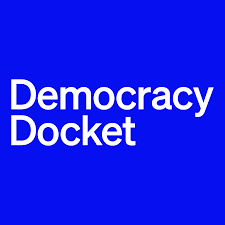 things: Donald Trump’s loyal lap dog, an observant Catholic and a Yale-trained lawyer.
things: Donald Trump’s loyal lap dog, an observant Catholic and a Yale-trained lawyer.
During his recent interview with the conservative columnist Ross Douthat, the vice president made clear those are in descending order of importance.
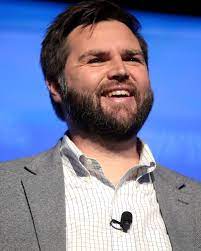 Hours after meeting the new Pope, Vance, shown at left in a file photo by Gage Skidmore, explained how his faith might bend to the realities of his political position and why the rule of law should do the same. Never once did he suggest Trump’s grotesque behavior should ever be tempered, limited or even judged by standards of the law or moral teaching.
Hours after meeting the new Pope, Vance, shown at left in a file photo by Gage Skidmore, explained how his faith might bend to the realities of his political position and why the rule of law should do the same. Never once did he suggest Trump’s grotesque behavior should ever be tempered, limited or even judged by standards of the law or moral teaching.
Indeed, it seemed clear that Vance’s Christianity ends at the point where Trump’s ego begins. The rule of law is useful so long as it enables rather than limits Trump’s exercising power. In this respect Vance is an ordinary sycophant in an extraordinary position of authority.His main complaint during the interview was that the courts are not rolling over for Trump. He chastised the Chief Justice for being “profoundly wrong” in believing the role of the judiciary is to check excesses of the executive branch. In fact, the Chief said it was to “check the excesses of Congress or the executive.”
This was not the only instance in which Vance apparently forgot the role of Congress or the idea of checks and balances. He repeatedly complained about judges blocking the administration’s unlawful and unconstitutional actions — casting them as undemocratic. He whined, “I think you are seeing an effort by the courts to quite literally overturn the will of the American people.”
Later in the interview, he claimed that by “design” the courts “should be extremely deferential to these questions of political judgment made by the people’s elected president of the United States.”
It was not long ago — when Joe Biden was in office — that Republicans routinely pointed out that we do not live in a democracy but rather a constitutional republic in which power is mediated through multiple layers of government and ultimately constrained by the Constitution. Now, Vance is suggesting that an unchecked president is a “small-d democratic principle that’s at the heart of the American project.”
Due process is the only thing that separates lawful governance from authoritarian overreach. That is why Vance sat in the Vatican to defend the indefensible. It is why we can never give up on defending it as a fundamental right owed to everyone.
The Bulwark, Opinion: RFK Jr.’s War on Vaccines Is Here, William Kristol, Andrew Egger, and Jim Swift, May 28, 2025. Anyone who thinks he’ll stop with COVID shots is deluding themselves. The time to raise hell is now.
Kristol, Andrew Egger, and Jim Swift, May 28, 2025. Anyone who thinks he’ll stop with COVID shots is deluding themselves. The time to raise hell is now.
Elon Musk’s bright-burning but brief turn as shadow president provided a lesson for other would-be revolutionaries in the Trump administration. Move too fast, break too many things, and you risk poisoning the public against you and your work.
It’s a lesson Robert F. Kennedy Jr., right, appears to be taking to 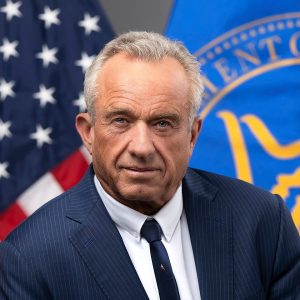 heart. Follow along to understand why — and why now is the moment for public pushback. You’ll be glad you did.
heart. Follow along to understand why — and why now is the moment for public pushback. You’ll be glad you did.
By now it should be clear to everyone, if it somehow wasn’t before, that the secretary of health and human services is gunning for America’s vaccines.
Kennedy, who just last year proclaimed that “there’s no vaccine that is safe and effective,” who has never stopped insisting that vaccines are connected to autism, and who has actively counseled people not to vaccinate their children for years, claimed implausibly after Trump’s reelection that “we’re not going to take vaccines away from anybody.” But since his confirmation, he has been busily laying the groundwork to do exactly that.
In the last few days, Kennedy has started to make his anti-vaccine plans a reality. On Friday, his HHS announced that the FDA would revoke authorization for COVID boosters for most healthy Americans under 65 years old. And yesterday, Kennedy announced in a video posted to social media that the COVID shot would be removed from the vaccine schedule for healthy pregnant mothers and children—a change that will likely lead insurance companies to drop the vaccine from coverage for those groups.
In announcing the change, Kennedy didn’t just say he believed the COVID vaccine to be unnecessary for those groups. He said the change would bring the nation “one step closer to realizing President Trump’s promise to Make America Healthy Again.” The implication was obvious: In Kennedy’s view, the COVID vaccine is an active threat to America’s good health.
As the New York Times’s Maggie Astor notes, this suggestion not only contradicts all available science—infants under six months old face as high a risk of hospitalization with COVID as do people who are 65 to 74 years old, and the best way to give them some protection is for their mother to get the shot while pregnant—it also contradicts the FDA and CDC’s own current guidance as of last week.
In many ways, the COVID vaccine is low-hanging fruit for RFK Jr.
But anyone who thinks Kennedy will stop at the COVID shot is deluding themselves. The man was agitating against vaccines long before COVID arrived on the scene, and his spurious arguments against the COVID shot are arguments he’s deployed time and again against other vaccines as well.
U.S. Technology/Political News- New York Times, U.S. Pauses Exports of Jet Engine and Chip Technology to China, Ana Swanson, May 28, 2025. President Trump has stopped some critical products and technologies made only in the United States from flowing to China.
- New York Times, A Disillusioned Musk, Distanced From Trump, Says He’s Exiting Washington, Tyler Pager, Maggie Haberman, Theodore Schleifer, Jonathan Swan and Ryan Mac, May 28, 2025. Elon Musk has made clear he is frustrated with the obstacles he encountered as he tried to upend the federal bureaucracy as an adviser to President Trump.
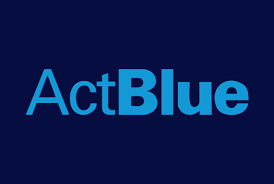 Associated Press via PBS News, Trump wants to investigate
Associated Press via PBS News, Trump wants to investigate  Democrats’ fund-raising but his own campaignhas issues, Brian Slodysko and Steve Peoples, May 27, 2025. When President Donald Trump directed his attorney general last month to investigate online fundraising, he cited concerns that foreigners and fraudsters were using elaborate “schemes“ and “dummy accounts” to funnel illegal contributions to politicians and causes.
Democrats’ fund-raising but his own campaignhas issues, Brian Slodysko and Steve Peoples, May 27, 2025. When President Donald Trump directed his attorney general last month to investigate online fundraising, he cited concerns that foreigners and fraudsters were using elaborate “schemes“ and “dummy accounts” to funnel illegal contributions to politicians and causes.
Instead of calling for an expansive probe, however, the president identified just one potential target: ActBlue, the Democrats’ online fundraising juggernaut, which has acknowledged receiving over 200 potentially illicit contributions last year from foreign internet addresses.
Trump’s announcement contained a glaring omission — his political committees also received scores of potentially problematic contributions.
An Associated Press review of donations to Trump over the past five years found 1,600 contributions from donors who live abroad, have close ties to foreign interests or failed to disclose basic information, often making it difficult, if not impossible, to identify them and verify the legality of their donations Among those was $5,000 linked to a derelict building, and $5,000 from a Chinese businessman who listed a La Quinta Inn as his address. Another sizable donation — $1 million — was made by the wife of an African oil and mining magnate.
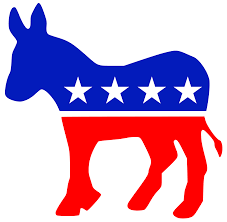 It’s against the law for U.S. candidates and political committees to accept contributions from foreign nationals. Laws also place strict limits on donation amounts and prohibit the laundering of contributions to get around legal caps. For the most part, such donations have been policed by campaigns and the Federal Election Commission, with only the most egregious examples being targeted by federal law enforcement.
It’s against the law for U.S. candidates and political committees to accept contributions from foreign nationals. Laws also place strict limits on donation amounts and prohibit the laundering of contributions to get around legal caps. For the most part, such donations have been policed by campaigns and the Federal Election Commission, with only the most egregious examples being targeted by federal law enforcement.
“This is him taking direct aim at the center of Democratic and progressive fundraising to hamstring his political opponents,” said Ezra Reese, an attorney who leads the political law division at the Elias Law Group, a leading Democratic firm that does not represent ActBlue. “I don’t think there’s any question that they picked their target first. He’s not even pretending.”Trump’s committees collected scores of donations from people living overseas
Democracy Docket, Pro-Democracy Voting Commentary: Ed Martin was too extreme for GOP senators. Now he’s at DOJ, targeting Trump’s enemies, May 27, 2025. When Trump withdrew Ed Martin Jr. ‘s nomination for U.S. Attorney for the District of Columbia, it came after a growing chorus of Republican senators who found him to be too extreme for the role.
was too extreme for GOP senators. Now he’s at DOJ, targeting Trump’s enemies, May 27, 2025. When Trump withdrew Ed Martin Jr. ‘s nomination for U.S. Attorney for the District of Columbia, it came after a growing chorus of Republican senators who found him to be too extreme for the role.
His work defending Jan. 6 rioters was a bridge too far for Sen. Thom Tillis (R-N.C.), who said he wouldn’t be voting to confirm Martin.
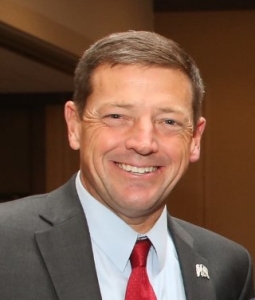 But Martin, right, didn’t fall out of favor with Trump. The president replaced Martin’s nomination as top D.C. prosecutor with Fox News host Jeanine Pirro, and appointed Martin to multiple roles in the DOJ — including the head of a new unit that aims to probe what Trump calls the political “weaponization” of the department under then-President Joe Biden.
But Martin, right, didn’t fall out of favor with Trump. The president replaced Martin’s nomination as top D.C. prosecutor with Fox News host Jeanine Pirro, and appointed Martin to multiple roles in the DOJ — including the head of a new unit that aims to probe what Trump calls the political “weaponization” of the department under then-President Joe Biden.
Trump also appointed Martin as the pardon attorney at DOJ, meaning he’ll advise Trump on who he should pardon. His first pardon on the job? A former Virginia sheriff who was convicted of federal bribery charges. “No MAGA left behind,” Martin wrote of the pardon.
That post, which blatantly undermines the department’s longstanding commitment to apolitical law enforcement, will only add to the worries of some former DOJ attorneys. They  say they’re concerned that Martin will use his new posts to spread disinformation, delegitimize future elections, and target leading Democrats and prosecutors who have pursued Trump. Indeed, it may already be happening.
say they’re concerned that Martin will use his new posts to spread disinformation, delegitimize future elections, and target leading Democrats and prosecutors who have pursued Trump. Indeed, it may already be happening.
As the head of DOJ’s nascent and vague “weaponization working group,” Martin is tasked with leading the department’s investigations into potential abuses of the criminal justice process by current and former officials.
In a February memo announcing the new group, Attorney  General Pam Bondi, right, named former Special Counsel Jack Smith and his staff as a primary subject of investigation, along with New York Attorney General Letitia James (D), Manhattan District Attorney Alvin Bragg (D), and other New York-based officials.
General Pam Bondi, right, named former Special Counsel Jack Smith and his staff as a primary subject of investigation, along with New York Attorney General Letitia James (D), Manhattan District Attorney Alvin Bragg (D), and other New York-based officials.
The department recently launched an inquiry into Andrew Cuomo, the Democratic former New York governor, according to The New York Times. The inquiry comes a month after Martin, as interim U.S. attorney for Washington, D.C., opened an investigation into Cuomo for allegedly making false statements to Congress.
The flurry of probes “should alarm anybody concerned about the rule of law,” Stacey Young, the founder of Justice Connection and a former longtime attorney in the DOJ’s civil rights division, told me. “They seem to be targeting the President’s political enemies, which is antithetical to how the rule of law must work.”
Letters from an American, Historical Commentary: May 26 [Trump Comments On Memorial Day], Heather Cox Richardson, right, May 27, 2025. President Donald J. Trump’s erratic behavior was on display this weekend in two public speeches: one to this year’s graduates at the U.S. Military Academy at West Point, New York, and the other at Arlington National Cemetery.
On Memorial Day], Heather Cox Richardson, right, May 27, 2025. President Donald J. Trump’s erratic behavior was on display this weekend in two public speeches: one to this year’s graduates at the U.S. Military Academy at West Point, New York, and the other at Arlington National Cemetery.
While both speeches are traditionally nonpartisan, Trump indicated he would make them partisan when he wore a red MAGA hat at West Point.
 The president began both speeches by sticking to a script but then veered off course.
The president began both speeches by sticking to a script but then veered off course.
At West Point on Saturday, his speech went on for over an hour. He attacked diversity, equity, and inclusion programs and said: “The job of the U.S. Armed Forces is not to host drag shows to transform foreign cultures, or to spread democracy to everybody around the world at the point of a gun,” he said. “The military’s job is to dominate any foe and annihilate any threat to America, anywhere, anytime, and any place.”
(In fact, the mission of the Department of Defense is “to provide the military forces needed to deter war and ensure our nation’s security.”)
Lincoln Square Media, Commentary: Tornadoes Don’t Take the Night off, Jennifer Schulze, May 27, 2025. Trump cut the weather experts who sound the alert when the rest of us are sleeping.
27, 2025. Trump cut the weather experts who sound the alert when the rest of us are sleeping.
An EF3 tornado roared through the city of St Louis on Friday, May 16. The 152-mile per hour winds flattened buildings, ripped out power lines, uprooted trees, and even damaged the local zoo. It was the city’s first deadly tornado in 66 years – and it was just one of at least 7 tornadoes that hit multiple states that day.
A little further north, a dust storm reminiscent of the Dust Bowl of the 1930s engulfed Chicago. This multi-day run of severe storms — including over 60-tornadoes — has killed 40+ people and done considerable damage in 13 states and counting. The bad weather continued through Memorial Day Weekend.
Already this year, we’ve had 886 tornadoes, a 35% increase over last year. Plus, hurricane season is right around the corner,too. Seems like a really ridiculous time to be sabotaging the National Weather Service, doesn’t it? But Donald Trump is doing just that.
The letter also instructs agencies to “find alternative vendors” for future services.
The additional planned cuts, outlined in a draft of the letter obtained by The New York Times, represented what an administration official called a complete severance of the government’s longstanding business relationship with Harvard.
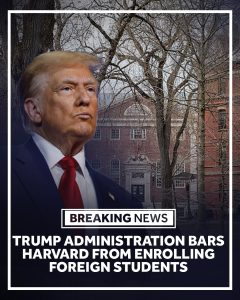 The letter is the latest example of the Trump administration’s determination to bring Harvard — arguably the country’s most elite and culturally dominant university — to its knees, by undermining its financial health and global influence.
The letter is the latest example of the Trump administration’s determination to bring Harvard — arguably the country’s most elite and culturally dominant university — to its knees, by undermining its financial health and global influence.
Since last month, the administration has frozen about $3.2 billion in grants and contracts with Harvard. And it has tried to halt the university’s ability to enroll international students.
The letter instructs agencies to respond by June 6 with a list of contract cancellations.

 Michael Cohen, May 27, 2025. Trump’s America doesn’t run on hope or optimism; it runs on vengeance, vanity, and victimhood. Judges are jailed, facts are fake, and freedom is just a slogan on a red hat. Time to end this nonsense!
Michael Cohen, May 27, 2025. Trump’s America doesn’t run on hope or optimism; it runs on vengeance, vanity, and victimhood. Judges are jailed, facts are fake, and freedom is just a slogan on a red hat. Time to end this nonsense!
Trump addressed the graduating class at West Point, America’s premier military academy. A moment that should’ve been about duty, sacrifice, and service to the Constitution. Instead? It turned into a bizarre soliloquy about the size of yachts, the costs of divorce, and how difficult it is to find a “loyal” woman when you’re a “successful” man. Hence, the trophy wife.
We’ve seen the so-called Commander-in-Chief hurl insults at our allies while cozying up to dictators. We’ve watched him undermine the intelligence community—again—this time by suggesting Ukraine provoked Russia with “bad vibes.”
So where does that leave us? It leaves us with a choice: get angry or get active. Or, preferably, both
The institutions we thought would protect us? They’re being gutted, repopulated with loyalists, or turned into corporate subsidiaries of Trump, Inc.
We need to call out the injustices we see every single day.
Because here’s the truth: we can’t afford to wait for “normal” to return. Normal is dead.
Michael Cohen is a bestseller author, host of The Mea Culpa Podcast and former Personal Attorney To President Donald J. Trump.
The Bulwark, Opinion: Trump’s Dangerous Pardon Power, William Kristol, below right, May 27, 2025. The president’s use of the power, which he deployed again over the weekend, is legal. It’s also a grave threat to the rule of law.
Kristol, below right, May 27, 2025. The president’s use of the power, which he deployed again over the weekend, is legal. It’s also a grave threat to the rule of law.
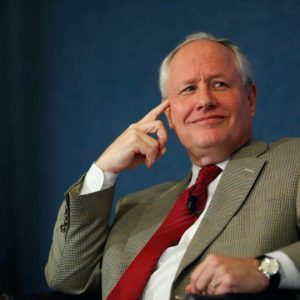 In the midst of his administration’s many attacks on the rule of law, Donald Trump’s pardon yesterday of one Virginia sheriff is barely newsworthy. But it is nonetheless a fire bell in the night, a reminder of the breadth and depth of the Trump administration’s assault on our free society.
In the midst of his administration’s many attacks on the rule of law, Donald Trump’s pardon yesterday of one Virginia sheriff is barely newsworthy. But it is nonetheless a fire bell in the night, a reminder of the breadth and depth of the Trump administration’s assault on our free society.

Scott Jenkins, above, the former sheriff of Culpeper County, Virginia, was set to report to jail today.
He’d been convicted in December 2024 by a jury of his peers on one count of conspiracy, four counts of honest services fraud, and seven counts of bribery. Jenkins had accepted more than $75,000 in bribes in exchange for appointing various untrained and unvetted individuals to no-show jobs as auxiliary deputy sheriffs. The evidence was overwhelming, including video of Jenkins accepting bags of cash, the testimony of some of those involved in the scheme, and reports from two undercover FBI agents. In March 2025, Jenkins was sentenced to 10 years in federal prison.
“Scott Jenkins violated his oath of office and the faith the citizens of Culpeper County placed in him when he engaged in a cash-for-badges scheme,” acting United States Attorney Zachary T. Lee said at the time of his sentencing.
But Jenkins was a rabidly anti-immigrant, pro-Trump sheriff who’d become a minor celebrity in MAGA world. Trump  himself may not have known of him, but Ed Martin did.
himself may not have known of him, but Ed Martin did.
Martin, left, you’ll recall, was made Attorney General Pam Bondi’s chief pardon attorney at the Department of Justice after failing to get Senate confirmation as U.S. attorney for the District of Columbia.
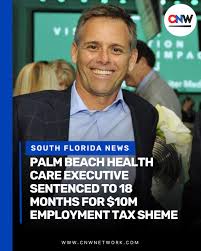
As Paul Walczak, above, awaited sentencing early this year, his best hope for avoiding prison time rested with the newly inaugurated president.
Mr. Walczak, a former nursing home executive who had pleaded guilty to tax crimes days after the 2024 election, submitted a pardon application to President Trump around Inauguration Day. The application focused not solely on Mr. Walczak’s offenses but also on the political activity of his mother, Elizabeth Fago.
Ms. Fago had raised millions of dollars for Mr. Trump’s campaigns and those of other Republicans, the application said. It also highlighted her connections to an effort to sabotage Joseph R. Biden Jr.’s 2020 campaign by publicizing the addiction diary of his daughter Ashley Biden — an episode that drew law enforcement scrutiny.
Mr. Walczak’s pardon application argued that his criminal prosecution was motivated more by his mother’s efforts for Mr. Trump than by his admitted use of money earmarked for employees’ taxes to fund an extravagant lifestyle.
Still, weeks went by and no pardon was forthcoming, even as Mr. Trump issued clemency grants to hundreds of other allies.
Then, Ms. Fago was invited to a $1-million-per-person fund-raising dinner last month that promised face-to-face access to Mr. Trump  at his private Mar-a-Lago club in Palm Beach, Fla.
at his private Mar-a-Lago club in Palm Beach, Fla.
Less than three weeks after she attended the dinner, Mr. Trump signed a full and unconditional pardon.
It came just in the nick of time for Mr. Walczak, sparing him from having to pay nearly $4.4 million in restitution and from reporting to prison for an 18-month sentence that had been handed down just 12 days earlier. A judge had justified the incarceration by declaring that there “is not a get-out-of-jail-free card” for the rich.
_____
Editor’s Note (compiled from wire services): Separately, Trump has also pardoned a Republican former Las Vegas city councilwoman  and state lawmaker from Nevada who was convicted in October of embezzling funds.
and state lawmaker from Nevada who was convicted in October of embezzling funds.
Michele Fiore, 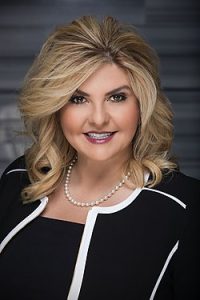 right, was found guilty of six counts of federal wire fraud and one count of conspiracy for raising over $70,000 for the statue of a slain Las Vegas police officer and instead using the money to pay for rent, plastic surgery and her daughter’s wedding.
right, was found guilty of six counts of federal wire fraud and one count of conspiracy for raising over $70,000 for the statue of a slain Las Vegas police officer and instead using the money to pay for rent, plastic surgery and her daughter’s wedding.
 Democracy Docket, Commentary: “Never wrestle with pigs,” Marc Elias, May 27, 2025. It has been two months since Brad Karp, the Chairman of Paul, Weiss, Rifkind, Wharton & Garrison, sent an email to his law firm explaining his reasoning for capitulating to Donald Trump’s demands. Someday, universities will devote entire business and law classes to dissecting the immorality and stupidity of that email and the deals Paul Weiss and other Big Law firms cut.
Democracy Docket, Commentary: “Never wrestle with pigs,” Marc Elias, May 27, 2025. It has been two months since Brad Karp, the Chairman of Paul, Weiss, Rifkind, Wharton & Garrison, sent an email to his law firm explaining his reasoning for capitulating to Donald Trump’s demands. Someday, universities will devote entire business and law classes to dissecting the immorality and stupidity of that email and the deals Paul Weiss and other Big Law firms cut.
For now, it’s enough to say that Karp failed to abide by the advice of George Bernard Shaw: “Never wrestle with pigs. You both get dirty, and the pig likes it.”
Over the weekend, it was reported that conservative groups — including some representing veterans — are looking for Paul Weiss and the other law firms that entered into agreements with Trump to make good on their promise for tens of millions to provide pro bono legal services. This follows Trump’s public musings that he might task the firms with defending police officers accused of misconduct and supporting the coal industry.
While the collaborators who run these law firms might publicly insist that they control what work they accept, firm management is loath to say no to Trump. Skadden Arps reportedly suggested a non-public role in one case brought to them by a conservative media figure.
At some point, Trump will inevitably make such requests public — and Karp and the others will have no choice but to say: “Yes, sir.” They may even have tears in their eyes.
Conservatives and the Trump administration are not Paul Weiss’s biggest problem, however. Key to Karp’s plan was the assumption that, as time passed, the political and legal establishments would look past his decision to cut a deal with Trump. Instead, anger and opposition have only stiffened.
Over the last two months, Paul Weiss has become to capitulation what Kleenex is to facial tissue: a generic term for an institution betraying its industry and its own ideals by making a deal with Trump.
People in higher education debate whether Columbia has become the Paul Weiss of universities. Harvard is lauded for rejecting the path charted by Paul Weiss. The media world is watching to see whether Paramount will take the Paul Weiss route by settling a meritless lawsuit rather than standing by 60 Minutes.
Cornell Daily Sun, No. 1 Men’s Lacrosse Wins Over No. 2 Maryland, Alexis Rogers and William D. Cawley, May 27, 2025. Takes National Title for First Time Since 1977.
and William D. Cawley, May 27, 2025. Takes National Title for First Time Since 1977.
 The Red took its last national title in 1977, but Cornell hadn’t made it back to the top for almost 50 years — until now.
The Red took its last national title in 1977, but Cornell hadn’t made it back to the top for almost 50 years — until now.
On Monday, the two dynasties met again in the Memorial Day clash as the top seeds in the country. The pressure built up from a rivalry as old as the NCAA Tournament itself came to a head, and after a furious back-and-forth match in front of 32,512 spectators, No. 1 Cornell (18-1, 6-0 Ivy) took a 13-10 victory over No. 2 Maryland (14-4, 3-2 Big 10).
- See also: Inside Lacrosse, SEEING RED: Cornell Beats Maryland For First NCAA Championship Since 1977

Gravesite in Great Britain of World War II fatality Beau Bryant [Photo by Carole Green.]
Letters from an American, Historical Commentary: May 25 [Memorial Day], Heather Cox Richardson, right, May 25, 2025. Tomorrow is Memorial Day, the day Americans have honored since 1868, when we mourn those military personnel who have died in the service of the country—that is, for the rest of us.
Heather Cox Richardson, right, May 25, 2025. Tomorrow is Memorial Day, the day Americans have honored since 1868, when we mourn those military personnel who have died in the service of the country—that is, for the rest of us.
For me, one of those people is Beau Bryant.
When we were growing up, we hung out at one particular house where a friend’s mom provided unlimited peanut butter and fluff sandwiches, Uno games, iced tea and lemonade, sympathetic ears, and stories. She talked about Beau, her older brother, in the same way we talked about all our people, and her stories made him part of our world even though he had been killed in World War II 19 years before we were born.
Beau’s real name was Floyston, and he had always stepped in as a father to his three younger sisters when their own father fell short.
When World War II came, Beau was working as a plumber and was helping his mother make ends meet, but in September 1942 he enlisted in the Army Air Corps. He became a staff sergeant in the 322nd Bomber Squadron, 91st Bomb Group, nicknamed “Wray’s Ragged Irregulars” after their commander, Col. Stanley T. Wray. By the time Beau joined, the squadron was training with new B-17s at Dow Army Airfield near Bangor, Maine, and before deploying to England he hitchhiked three hours home so he could see his family once more.
It would be the last time. The 91st Bomb Group was a pioneer bomb group, figuring out tactics for air cover. By May 1943 it was experienced enough to lead the Eighth Air Force as it sought to establish air superiority over Europe. But the 91st did not have adequate fighter support until 1944. It had the greatest casualty rate of any of the heavy bomber squadrons.
Beau was one of the casualties. On August 12, 1943, just a week before his sister turned 18, while he was on a mission, enemy flak cut his oxygen line and he died before the plane could make it back to base. He was buried in Cambridge, England, at the Cambridge American Cemetery and Memorial, the military cemetery for Americans killed in action during WWII. He was twenty years old.
I grew up with Beau’s nephews and nieces, and we made decades of havoc and memories. But Beau’s children weren’t there, and neither he nor they are part of the memories.
Thinking about our untimely dead is hard enough, but I am haunted by the holes those deaths rip forever in the social fabric: the discoveries not made, the problems not solved, the marriages not celebrated, the babies not born.
I know of this man only what his sister told me: that he was a decent fellow who did what he could to support his mother and his sisters. Before he entered the service, he once spent a week’s paycheck on a dress for my friend’s mother so she could go to a dance.
And he gave up not only his life but also his future to protect American democracy against the spread of fascism.
So Beau Bryant, and perhaps all he stood for, will not be forgotten after all.
May you have a meaningful Memorial Day.
The Contrarian, Historical Commentary: What They Died For, Norm Eisen, right,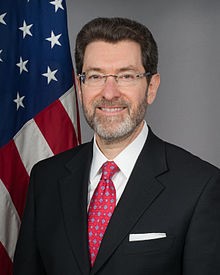 May 26, 2025. Memorial Day has particular meaning for me. I would not be alive if it were not for the US military. It helped
May 26, 2025. Memorial Day has particular meaning for me. I would not be alive if it were not for the US military. It helped  save both my parents in World War II—though in very different ways.
save both my parents in World War II—though in very different ways.
In spring 1945, my mom had been in Nazi captivity for a year—transferred from Auschwitz to a slave labor camp in Neuengamme Germany, packing (and when she could, sabotaging) ammunition. When she was flagging, a friendly jailer whispered to her to hang on—the allies were near. But for the US Armed Forces joining the fight, at terrible cost to so many American soldiers and families, my mom would not have survived.
My Dad’s connection was more direct: he actually served in those forces. He fled Europe for the US in 1940, arrived here with no papers, and enlisted in the Army to become a citizen. Who knows what would’ve become of him if the Army hadn’t welcomed him. While my parents didn’t meet until years after the war (in Israel, of all places), the US military was their godsend, and so mine.
I thought of all that this weekend, as I watched a group of veterans process at the Brown University commencement ceremony (I was there for my 40th reunion). The university has a program for veterans to get college degrees. The diverse platoon was composed of about twenty men and women; short and tall; black, brown, and white; all clad in gowns and mortarboards instead of uniforms or camouflage. They were greeted with cheers and whoops for their own accomplishments, of course, but also for the honor of the extraordinary institution they represent.
The American idea, which they and their absent comrades fought and died for, is being attacked from within this Memorial Day. How do we honor those who died for freedom when we see liberty under attack here at home? How do we salute the flag and that idea of America it stands for, when its meaning is being assaulted daily by the very administration entrusted with its care?
I know some might say we should simply remember our lost soldiers today, without tarnishing that tribute by addressing our political climate. But to my mind, looking away squanders their sacrifice. It is our responsibility to be candid about the crisis and to honor their service more urgently than ever.
We can do that by recommitting ourselves to defending our democracy. To memorialize our veterans’ sacrifices is to attend to the fragile, unfinished work of fighting autocracy and building a country worthy of their service. It is to hold tight to the idea of America, even when its practice falters. To do our part, as they did—not on distant battlefields, but on our streets, among our communities, and in our courthouses.
For me, that mission is informed by a Jewish aphorism that my parents, both saved by American soldiering, would sometimes say to me:
לֹא עָלֶיך הַמְלָאכָה לִיגמוֹר, וְלֹא אַתָּה בֶן חֹרִין לְחִבָּטֵל מִמֶנָה
“Your job is not to finish the work—but neither are you, the child of free people, not to do your share.”
President Trump’s Memorial Day Message Via Truth Social: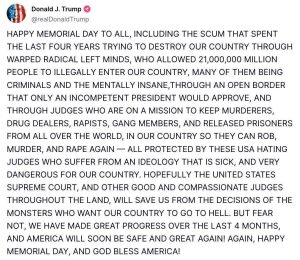 Meidas Touch Network, Commentary: Today in Politics, Bulletin 139, Ron
Meidas Touch Network, Commentary: Today in Politics, Bulletin 139, Ron  Filipkowsk, right, May 26, 2025. Trump posted a Memorial Day message with this moving tribute to the men and women who paid the ultimate price serving their country in the military (shown above and below):
Filipkowsk, right, May 26, 2025. Trump posted a Memorial Day message with this moving tribute to the men and women who paid the ultimate price serving their country in the military (shown above and below):
“HAPPY MEMORIAL DAY TO ALL, INCLUDING THE SCUM THAT SPENT THE LAST FOUR YEARS TRYING TO DESTROY OUR COUNTRY THROUGH WARPED RADICAL LEFT MINDS, WHO ALLOWED 21,000,000 MILLION PEOPLE TO ILLEGALLY ENTER OUR COUNTRY, MANY OF THEM BEING CRIMINALS AND THE MENTALLY INSANE, THROUGH AN OPEN BORDER THAT ONLY AN INCOMPETENT PRESIDENT WOULD APPROVE, AND THROUGH JUDGES WHO ARE ON A MISSION TO KEEP MURDERERS, DRUG DEALERS, RAPISTS, GANG MEMBERS, AND RELEASED PRISONERS FROM ALL OVER THE WORLD, IN OUR COUNTRY SO THEY CAN ROB, MURDER, AND RAPE AGAIN — ALL PROTECTED BY THESE USA HATING JUDGES WHO SUFFER FROM AN IDEOLOGY THAT IS SICK, AND VERY DANGEROUS FOR OUR COUNTRY.” (Shown below:)
… He then made a post telling people to “ENJOY!!!” his speech at Arlington National Cemetery: “I will be making a Memorial Day Speech at Arlington at 11:00 AM. ENJOY!!!”
… Trump voter and former talk show host John Cardillo: “Sorry, but this is grossly inappropriate. There is nothing happy about Memorial Day. And the rest of it on this day is just unbecoming for a Commander-in-Chief. Sad part is pretty much everyone feels the same, but too many are terrified to speak up.”
… In his speech at Arlington before Trump, SecDef Pete Hegseth, who repeatedly expressed hostility in the past to women serving, refused to acknowledge them: “The American soldier fights not because he hates what is in front of him, but because he loves what is behind him. We honor his sacrifice, his courage, his duty, and his love. The young men with hopes and dreams and loves is called by his country, leaves behind his hometown, his parents, his siblings, his sweetheart, all that he knows to go fight a war that he may or may not understand.” (Emphasis added.)
… Trump went about as far as he has ever gone towards criticizing Putin a little bit when he was asked about recent bombings after Ukraine signed the cease fire agree ment: “I’m not happy with what Putin is doing. He’s killing a lot of people and I don’t know what the hell happened to Putin. I’ve known him a long time. We’re in the middle of talking and he’s shooting rockets into Kyiv and other cities. I don’t like it at all. I’m surprised.”
ment: “I’m not happy with what Putin is doing. He’s killing a lot of people and I don’t know what the hell happened to Putin. I’ve known him a long time. We’re in the middle of talking and he’s shooting rockets into Kyiv and other cities. I don’t like it at all. I’m surprised.”
… If he really is surprised, he’s the only one who is surprised.
… Fox Chief Political Analyst Brit Hume: “Glad to hear President Trump say this, but Putin hasn’t changed. He’s always been a brutal tyrant.”
… In other words, Trump promised repeatedly during the campaign that he had a secret plan to end the war in 24 hours and he was just bullshitting everyone because he doesn’t have the first clue what to do, he gave away all negotiating leverage months ago when he agree up front to most of what Russia was asking for before negotiations even began, and his special envoy Steve Witkoff is a dope.
… Witkoff, the man Trump entrusted to negotiate an end to the war, has never been a diplomat, never served in the military, never worked in govt at any capacity, and is not a historian or expert on affairs in the region. He got the job because he is a wealthy real estate investor pal of Trump’s from NYC and Witkoff’s son is a major player in the crypto industry, which is now Trump’s largest source of revenue.
… Witkoff has also not taken a single person from the State Dept with him during any of his 4 meetings with Putin and even used a Kremlin translator because he didn’t bring his own. Why has this been a disaster? Because Trump and Witkoff are incompetent clowns.
 Paul Krugman via Substack, Commentary: The Economic Consequences of Destroying Harvard, Paul Krugman, right, May 26, 2025. Harvard is easy to dislike. It’s rich. It’s elitist. It rejected my application back when I was a high school senior.
Paul Krugman via Substack, Commentary: The Economic Consequences of Destroying Harvard, Paul Krugman, right, May 26, 2025. Harvard is easy to dislike. It’s rich. It’s elitist. It rejected my application back when I was a high school senior.
 But the Trumpist effort to destroy Harvard and other elite universities — for that is clearly their intention — will do vast damage to our nation’s future.
But the Trumpist effort to destroy Harvard and other elite universities — for that is clearly their intention — will do vast damage to our nation’s future.
The most important aspect of this campaign of intimidation and disruption is, of course, the attack on freedom of thought. I hope that nobody actually believes the MAGA line that universities are indoctrinating their students in wokeness, DEI, Marxism, whatever. The real complaint, obviously, is that these institutions aren’t indoctrinating their students — that they are exposing young people to a variety of ideas and encouraging them to think for themselves, when they should be preaching right-wing dogma and obedience to whatever The Leader says they should believe.
Given this terrifying reality of the Trumpian war on learning, indeed on scientific thought itself, it may seem crass to examine the economic consequences of the attacks on higher education. Yet it’s important to understand that these consequences will also be disastrous – both for the current economy and for the economy’s long-term future.
 Harvard is a major U.S. exporter. The foreign students that the Trump administration is trying to ban usually pay their own tuition — money that shows up as a credit in the US trade balance. But arguably the much larger issue is that Harvard is a crucial element within the Greater Boston economy. This regional economy is one of the crown jewels of the U.S. economy, one of the most important generators of high incomes, specialized knowledge and innovation.
Harvard is a major U.S. exporter. The foreign students that the Trump administration is trying to ban usually pay their own tuition — money that shows up as a credit in the US trade balance. But arguably the much larger issue is that Harvard is a crucial element within the Greater Boston economy. This regional economy is one of the crown jewels of the U.S. economy, one of the most important generators of high incomes, specialized knowledge and innovation.
President Trump floated a new plan on Monday for the $3 billion he wants to strip from Harvard University, saying in a social media post that he was thinking about using the money to fund vocational schools.
“I am considering taking THREE BILLION DOLLARS of Grant Money away from a very antisemitic Harvard, and giving it to TRADE SCHOOLS all across our land,” Mr. Trump posted on Truth Social, his social media platform.
![]() The announcement, among the president’s Memorial Day social media messages, did not appear to refer to any new cut in funding, but rather to a redistribution of money the administration already announced it had frozen or stripped from Harvard and its research partners.
The announcement, among the president’s Memorial Day social media messages, did not appear to refer to any new cut in funding, but rather to a redistribution of money the administration already announced it had frozen or stripped from Harvard and its research partners.
Mr. Trump gave no details about how such a plan would work.
The message was accompanied by yet another post accusing Harvard of being slow to respond to the administration’s requests for information on “foreign student lists.” Mr. Trump said his administration wanted them in order to determine how many “radicalized lunatics, troublemakers all, should not be let back into our Country.”
The posts seemed intended to keep up public relations pressure on Harvard, the nation’s oldest and wealthiest university. Harvard is engaged in an epic battle with the White House, rooted in the administration’s claims that the university tolerates antisemitism and promotes liberal ideology.
Harvard declined on Monday to comment on the president’s post.
The university is battling the White House in federal court in Boston to secure the reinstatement of grants and contracts that the government has frozen or withdrawn, amounting to more than $3 billion. In a separate lawsuit, the university is also fighting Mr. Trump’s plan to take away the university’s right to admit international students.
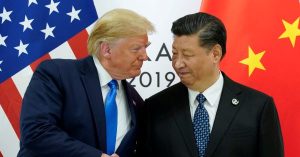 President Trump and China’s leader Xi Jinping at a 2019 meeting.
President Trump and China’s leader Xi Jinping at a 2019 meeting.
 For President Trump, anytime is a good time for deal-making, but never more so than now with the leaders of China and Russia.
For President Trump, anytime is a good time for deal-making, but never more so than now with the leaders of China and Russia.
Last week, Mr. Trump said he wanted to normalize commerce with Russia, appearing to lessen the pressure on Moscow to settle its war with Ukraine. And he is trying to limit the fallout from his own global trade war by urging China’s leader to call him.
“We all want to make deals,” Mr. Trump said in a recent interview with Time magazine. “But I am this giant store. It’s a giant, beautiful store, and everybody wants to go shopping there.”
Mr. Trump may have something even bigger in mind involving Russia and China, and it would be the ultimate deal.
His actions and statements suggest he might be envisioning a world in  which each of the three so-called great powers — the United States, China and Russia — dominates its part of the globe, some foreign policy analysts say.
which each of the three so-called great powers — the United States, China and Russia — dominates its part of the globe, some foreign policy analysts say.
It would be a throwback to a 19th-century style of imperial rule.
Mr. Trump has said he wants to take Greenland from Denmark, annex Canada and re-establish American control of the Panama Canal. Those bids to extend U.S. dominance in the Western Hemisphere are the clearest signs yet of his desire to create a sphere of influence in the nation’s backyard.

In his drive to purge diversity efforts in the federal government and beyond, President Trump has expressed outright hostility to civil rights protections.
 He ordered federal agencies to abandon some of the core tenets of the Civil Rights Act of 1964, on the basis that they represented a “pernicious” attempt to make decisions based on diversity rather than merit.
He ordered federal agencies to abandon some of the core tenets of the Civil Rights Act of 1964, on the basis that they represented a “pernicious” attempt to make decisions based on diversity rather than merit.
But in recent weeks, Mr. Trump has turned to those same measures — not to help groups that have historically been discriminated against, but to remedy what he sees as the disenfranchisement of white men.
The pattern fits into a broader trend in the administration, as Trump officials pick and choose which civil rights protections they want to enforce, and for whom. Across the government, agencies that have historically worked to fight discrimination against Black people, women and other groups have pivoted to investigating institutions accused of favoring them.
“The plain message that they are conveying is: If you even think about, talk about or claim to be in favor of diversity, of equity, of inclusion, of accessibility, you will be targeted,” said Maya Wiley, the president and chief executive of the Leadership Conference on Civil and Human Rights.
“They’re conveying that white men are the most discriminated against people in American society,” she added, “and therefore entitled to affirmative action.”

A crater in a residential area in Odesa, Ukraine, after a drone strike, on Sunday (Reuters photo by Nina Liashonok)
Russia unleashed yet another massive aerial bombardment aimed at Ukrainian cities and towns before dawn on Monday, pressing its advantage as the United States increasingly removes itself from the conflict and diplomatic efforts to end it.
 At least 355 Russian drones swarmed the skies across Ukraine and bombers unleashed nine missiles, Ukraine said. The attack followed criticism by President Trump of President Vladimir V. Putin of Russia, whom he accused on social media of going “absolutely CRAZY” in his bid to conquer Ukraine.
At least 355 Russian drones swarmed the skies across Ukraine and bombers unleashed nine missiles, Ukraine said. The attack followed criticism by President Trump of President Vladimir V. Putin of Russia, whom he accused on social media of going “absolutely CRAZY” in his bid to conquer Ukraine.
But Mr. Trump, speaking to reporters before boarding Air Force One on Sunday, gave no indication that he is willing to provide Ukraine with military assistance. He also declined to answer questions about whether the attacks will lead to a change in policy.
Over the past week, Russia has directed at least 1,390 drones and 94 missiles at targets across Ukraine, the Ukrainian Air Force said. The attacks have killed at least 30 civilians and injured more than 163, Ukraine says.
The campaign comes a week after Mr. Trump spoke to Mr. Putin by telephone and appeared ready to abandon his efforts to secure a cease-fire.

U.S. Army Spc. Seth Wymer, with the 3rd Infantry Regiment (The Old Guard), and a sentinel at the Tomb of the Unknowns, places a U.S. flag at the foot of one of four crypts at Arlington National Cemetery in Arlington, Va., May 23, 2013. |Department of Defense photo by Staff Sgt. Megan Garcia, U.S. Army]
Lincoln Square Media, Opinion: Look in the Mirror: Are We Worth their Sacrifice? Evan Fields (a veteran who writes the News from Underground Substack), May 26, 2025. With our country adrift, Memorial Day is losing its meaning for too many.
Memorial Day is an opportunity for us to reflect not only on the dead and their sacrifice, but on ourselves. An opportunity for us to look in the mirror and ask some uncomfortable questions:
Evan Fields (a veteran who writes the News from Underground Substack), May 26, 2025. With our country adrift, Memorial Day is losing its meaning for too many.
Memorial Day is an opportunity for us to reflect not only on the dead and their sacrifice, but on ourselves. An opportunity for us to look in the mirror and ask some uncomfortable questions:
- Do we vote in every election — or only when it feels urgent?
- Do we speak up when power is being abused — or wait for someone else to?
- Do we fight for truth — or just amplify outrage?
- Do we protect liberty and justice for all — or just those who look like us?
These holidays become a reminder that patriotism becomes performance and not a series of actions for the greater good. Patriotism doesn’t look like flags on trucks, slogans on shirts, or fireworks on the fourth of July. Patriotism is espousing and honoring the values that we are supposed to be reflecting on this weekend.

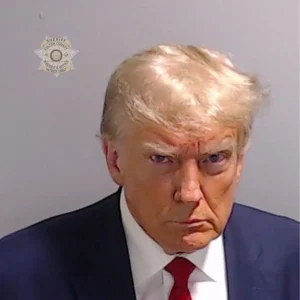 The Hartmann Report, Opinion: Why Corruption Always Breeds Tyranny: Lessons from Trump’s Second-Term Playbook, Thom Hartmann, right, May 26, 2025. The
The Hartmann Report, Opinion: Why Corruption Always Breeds Tyranny: Lessons from Trump’s Second-Term Playbook, Thom Hartmann, right, May 26, 2025. The  chilling similarities to past tyrants—and why America can’t look away anymore…
chilling similarities to past tyrants—and why America can’t look away anymore…
“All tyrannies rule through fraud and force, but once the fraud is exposed they must rely exclusively on force.” — George Orwell
It’s axiomatic that dictators are corrupt. But understanding the inevitable relationship between corruption and dictatorship — and how it flows in both directions — is essential to understanding the direction the Trump Crime Family is taking America.
First, it’s important to know that there’s no such thing as a dictator who’s not corrupt. Every dictator in world history, with the possible exception of Cincinnatus, has been massively corrupt.
To defy public opinion while skimming wealth out of the state’s coffers and public commons, national leaders must use the typical tools of dictatorship to intimidate good government advocates into silence: violence, threats, capture of police agencies and courts, intimidation of the press, cowing politicians, and prisons.
I’ve worked in and negotiated with governments in multiple countries where this was the plain reality: Uganda under Amin, Haiti, The Philippines under Marcos, Thailand during the military coup, Colombia, Peru, Russia, South Sudan, China in the 1980s, and a handful of others.
In every case the media was cowed, courts were run by sycophants loyal to Dear Leader, and the police were largely unaccountable to the people while kleptocrats shoveled fortunes into offshore banks and American or British real estate (we are only one of two developed countries in the world that allows anonymous shell companies to “invest” in real estate).
Less obvious, though, is how politicians in functioning democracies become dictators in order to protect their own corrupt attempts to profit off their leadership roles and loot the national purse.
Americans are particularly blind to this, as we’ve never had a president who publicly attempted to use his position of power to enrich himself (even Nixon had the good sense to try to hide the bribes he took from the milk lobby and Jimmy Hoffa).
Looking at how this works in other countries, however, reveals the pattern.
First, the democratically elected leader takes power, like Putin did in Russia and Orbán did in Hungary.
In the beginning, things seem relatively normal, although there’s an apparent zeal for “reforms” that seem questionable like replacing government functions with private contractors close to the leader, appointing incompetent but totally loyal toadies to run major essential agencies, and changes to election laws making it easier for wealthy people to buy elections and harder for democracy advocates to vote.
Those “reforms” are the early warnings that, if not stopped quickly, a dictatorship is being birthed.
Next come loud complaints about “fake news,” “enemies within the government,” and “activist judges”: This is the second major warning that the newly elected leader is trying to move the country toward authoritarianism.
Once the public is inured to these signals, the next step is for the leader to actively convert his position of political power into cash for himself, his family (inevitably: remember Saddam’s sons Uday and Qusay?), and the oligarchs he’s brought into his circle of power.
He sells access to himself and the senior levels of his government using barely-legal schemes, bestows favors to corrupt foreign nations and their leaders in exchange for their enriching his family, and systematically replaces judges and agency heads with people whose first loyalty (and, often, financial interest) is to him personally rather than the nation or the rule of law.
This last point is key, and why virtually every senior official in every corrupt foreign government I’ve ever met or negotiated with wasn’t particularly bright and definitely wasn’t qualified to hold the position of power they did.
This is where we are now in America. Our:
—  Secretary of Homeland Security, right, doesn’t know what habeas corpus is,
Secretary of Homeland Security, right, doesn’t know what habeas corpus is,
— Secretary of State refuses to call Putin a war criminal (after demanding, years ago, that Rex Tillerson in that same position do so),
— Secretary of Education is a billionaire wrestling promoter,
— Lead negotiator with Putin about Ukraine is a real estate billionaire friend of Trump with no diplomatic experience,
— Secretary of Transportation is a reality TV star with no experience in that field,
— Secretary of Defense is a drunk and accused rapist who ran two tiny veterans’ organizations into the ground,
— Secretary of Health is a conspiracy-nut lawyer with no training in medicine,
— Social Security Commissioner is a former Wall Street executive who had to google his own new job description,
— EPA Administrator is a former congressman with deep connections to the fossil fuel industry,
— Secretary of the Interior was heavily invested in fossil fuels,
— US Attorney for New Jersey is a former parking garage lawyer, etc.
During his first term, Trump followed the advice of people entrenched in the federal bureaucracy and repeatedly appointed people with reasonable qualifications for their jobs. One after another, from Comey to Tillerson to Sessions and beyond, when they refused to swear personal loyalty to Trump or help him promote corrupt schemes he fired them.
This time, following what could be called the “Putin Rule,” Trump has put 13 of his billionaire buddies in his cabinet and stocked his senior-most roles in critical federal agencies with incompetent but reliably loyal bootlickers.
This illustrates how a wannabe dictator becomes a real dictator. If he’s committed to enriching himself at the public trough (as all dictators are), he really has no choice: he must crack down when his corruption and violations of law are called out.
This is how dictators are always created, at least every one in countries I’ve interacted with.
Meidas Touch Network, Opinion: Meidas Founder Delivers Memorial Day Message, Ben Meiselas, May 26, 2025. Today we honor the American soldiers who made the ultimate sacrifice for our country.
Message, Ben Meiselas, May 26, 2025. Today we honor the American soldiers who made the ultimate sacrifice for our country.
My grandpa Murray Golden (hence our slogan, “Truth is Golden”), who passed away almost 20 years ago, was a tail gunner in World War II. He was a Purple Heart recipient.
When we would go fishing in his small pond in Boca, Florida, he would share with me the stories of those he served with who didn’t make it back home. It was very emotional and left a lasting impression on me. I always think about that on Memorial Day.
I always reflect on the bravery of those who fought and died for our country, and I hope that in some small way I am making them proud by building out this network.
Memorial Day also marks the unofficial start of summer. You’ve heard me call it this before, but this will be known as “Democracy Summer.” We are going to see the largest mass peaceful protests in the history of the country. I can tell that’s where we are headed.
The Trump regime has done so much to hurt the people of this country that we will need a collective release of our anger that will also be anchored by our love. The big protest coming up is the No Kings Protest on June 14, where I expect millions of people across the country will show up. Protests will continue to grow from there. We are in touch with all the organizers and will be on the frontlines and embedded to give you the coverage corporate news wants to cover up.
 E.U. Alan Rappeport and Ana Swanson, May 26, 2025 (print ed.) President Trump said on Sunday that he would delay imposing 50 percent tariffs on all imports from the European Union until July 9 to allow more time for trade negotiations.
May 24
E.U. Alan Rappeport and Ana Swanson, May 26, 2025 (print ed.) President Trump said on Sunday that he would delay imposing 50 percent tariffs on all imports from the European Union until July 9 to allow more time for trade negotiations.
May 24
 Cornell Daily Sun, ‘Ithaca Will Always Be Your Home’: Kotlikoff Addresses and Confers Degrees to Class of 2025, Zeinab Faraj, May 24, 2025. Despite the wet, windy and rainy conditions on Saturday, more than 8,000 graduates for Cornell’s 157th Graduating Class gathered at Schoellkopf Field to receive conferments of their degrees from President Michael Kotlikoff.
Cornell Daily Sun, ‘Ithaca Will Always Be Your Home’: Kotlikoff Addresses and Confers Degrees to Class of 2025, Zeinab Faraj, May 24, 2025. Despite the wet, windy and rainy conditions on Saturday, more than 8,000 graduates for Cornell’s 157th Graduating Class gathered at Schoellkopf Field to receive conferments of their degrees from President Michael Kotlikoff.
 In his address to the class, Kotlikoff, right, told the stories of the founders of Cornell, Ezra Cornell and Andrew Dickson White and explained the divisions the University has faced over the last few years.
In his address to the class, Kotlikoff, right, told the stories of the founders of Cornell, Ezra Cornell and Andrew Dickson White and explained the divisions the University has faced over the last few years.
“Today, our nation is confronting old differences, amplified in new ways,” Kotlikoff said. “Each of us is invited every day … into private worlds built only for us, where we hear only the opinions we agree with, see only the stories we want to read, and watch only news that an algorithm predicts will click on and like.”
Kotlikoff affirmed that Cornell’s founders and motto of “any person, any study” was designed to confront differences and for students and have a community that would allow discourse and disagreements.
Kotlikoff’s address follows a school year full of student demonstrations and protests amid the ongoing war in Gaza, the recent cancellation of Kehlani’s invitation to Slope Day and the freezing of over $1 billion to Cornell from the Trump administration.

The latest confrontation between Harvard University and the Trump administration began last month with a far-reaching demand for data on international students.
 Kristi Noem, right, the secretary of the Department of Homeland Security, sent a letter to Harvard requesting, among other things, coursework for every international student and information on any student visa holder involved in misconduct or illegal activity.
Kristi Noem, right, the secretary of the Department of Homeland Security, sent a letter to Harvard requesting, among other things, coursework for every international student and information on any student visa holder involved in misconduct or illegal activity.
 Harvard rebuffed parts of the request, and the Trump administration retaliated on Thursday. In one of its most aggressive moves so far against the university, the government said Harvard could no longer enroll any international students, who account for about one-fourth of its total enrollment.
Harvard rebuffed parts of the request, and the Trump administration retaliated on Thursday. In one of its most aggressive moves so far against the university, the government said Harvard could no longer enroll any international students, who account for about one-fourth of its total enrollment.
It also expanded its request for records to include any videos of international students, on campus or off, involved in protests or illegal or dangerous activity.
The conflict has only further raised the stakes over the future of America’s oldest and most powerful university.
The administration’s attempt to vacuum up vast amounts of private student data opens a new front in Mr. Trump’s crackdown on dissent from his political agenda. The strategy is aimed at realigning a higher education system the president sees as hostile to conservatives by stamping out what it says is antisemitism on campus and the transgender and diversity policies it says are rooted in “woke” ideology.
Harvard counters that it has provided all the data that is legally required and that the administration’s unrelenting pressure campaign — including the termination of billions in federal research grants — amounts to an attempted takeover of the institution, bullying the university into changing what it can teach and whom it can hire.
Harvard said the government’s latest action “is the culmination of an unprecedented and retaliatory attack” on the school’s freedom of speech.
 ideological experiments” or “nation-building crusades.”
ideological experiments” or “nation-building crusades.”
President Trump told cadets in a commencement address at the United States Military Academy at West Point on Saturday that they were the first graduates to serve in a “golden age” of the nation that was a result of his efforts to rebuild the military and reshape American society.
Gone are the “nation-building crusades” in countries that “wanted nothing to do with us” and leadership that subjected service-members to “absurd ideological experiments here and at home,” Mr. Trump told the group of about 1,000 cadets.
 Wearing his red “Make America Great Again” hat, Mr. Trump leaned into his aggressive agenda to purge diversity, equity and inclusion programs from the government, military and virtually every facet of American life to make the pitch that the nation is worth fighting for again. He drew applause from guests at times, such as when he discussed the issue of transgender athletes playing in female sports and hiring on merit over diversity.
Wearing his red “Make America Great Again” hat, Mr. Trump leaned into his aggressive agenda to purge diversity, equity and inclusion programs from the government, military and virtually every facet of American life to make the pitch that the nation is worth fighting for again. He drew applause from guests at times, such as when he discussed the issue of transgender athletes playing in female sports and hiring on merit over diversity.
At the outset of his second term, he issued a spate of executive orders targeting programs and policies that have helped address systemic racism, which he deemed divisive and unpatriotic.
He claimed that his predecessors had “subjected the armed forces to all manner of social projects and political causes, while leaving our borders undefended and depleting our arsenals to fight other countries’ wars.”
“All of that’s ended. It’s ended strongly,” he said. ”They’re not even allowed to think about it anymore.”
Mr. Trump’s crusade against diversity has been particularly pronounced in the military, where there has been an aggressive erasure of the valor of Black, female and other groups, down to eliminating and obscuring content honoring those buried at Arlington National Cemetery.
MeidasTouch Network, Opinion: Bloomberg Just Gave US MIDDLE FINGER…I AM PISSED!! Ben Meiselas, May 25, 2025. I am pissed. I usually like the work of many Bloomberg writers, especially in the business and podcast space. But I just saw that one of their writers posted
many Bloomberg writers, especially in the business and podcast space. But I just saw that one of their writers posted  the most insane state regime propaganda for Trump, and I am livid!
the most insane state regime propaganda for Trump, and I am livid!
A Bloomberg reporter whose beat is the environment and energy reported on Trump’s unhinged and barely coherent speech today before Army grads at West Point. She acted like Trump gave a normal speech and said Trump’s advice to the Army grads was “do what you love, think big, work hard and never give up…”
Now, I watched that whole damn speech. I reported on it here.
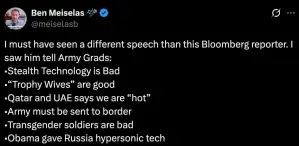
It was unadulterated fascist insanity. He talked about “trophy wives,” lied about Obama and defamed him by claiming he gave hypersonic military secrets to Russia, said he doesn’t like stealth technology, and attacked the transgender community. Throughout the whole speech, Trump was wearing a red political campaign hat as well.
Seriously, what the hell is wrong with these people?!!
I am just flabbergasted and aghast at the media impulse to take Trump’s sickening behavior and frame it through some normal lens while he tries to destroy our country and our free press. Are they auditioning for a job on Fox?!! Do they love his fascist, putrid scent?!!
CNN, Colleges are canceling affinity graduations due to anti-DEI policies, Nicquel Terry Ellis, May 24, 2025. Here is how students are preserving the traditions.
Nicquel Terry Ellis, May 24, 2025. Here is how students are preserving the traditions.
Harvard is among several universities across the country that have canceled affinity graduations amid threats from President Donald Trump to block medical research funding and revoke accreditation from schools that don’t end diversity, equity and inclusion practices. Trump decries these programs as “illegal and immoral discrimination.”
Affinity graduations are optional events typically led by students to celebrate different student identities and ethnicities. Commonly held ceremonies often honor Black, Hispanic, Asian, first-generation and LGBTQ+ students. Students say the events are significant because they honor the music, apparel, food, history, language and traditions unique to their identity.
 Lincoln Square Media, Legal Commentary: Can We Trust Courts to Stop Trump’s Lawlessness? Sam Bagenstos (Professor of law and public policy, May 25, 2025.
Lincoln Square Media, Legal Commentary: Can We Trust Courts to Stop Trump’s Lawlessness? Sam Bagenstos (Professor of law and public policy, May 25, 2025.  The harms that Trump is causing — to our people, our polity, our politics, and so much more — go well beyond any possible violations of law.
The harms that Trump is causing — to our people, our polity, our politics, and so much more — go well beyond any possible violations of law.
Just following the mass of litigation against the second Trump Administration can be a full-time job.
One leading tracker currently identifies 244 distinct cases filed against the administration. Many of these cases have been through multiple stages: temporary restraining orders, preliminary injunctions, summary judgment motions, enforcement and contempt proceedings, and appeals (and requests for stays) at each stage — in a number of instances going all the way to the Supreme Court.
And Trump’s been back in office for a mere four months!
Even the past weeks have been dizzying. On May 16, the Supreme Court issued its latest ruling in A.A.R.P. v. Trump. (The letters “A.A.R.P.” here are the initials of the person who filed the lawsuit, not the well-known advocacy organization for older Americans.) The Court seemed to take a strong stand against Trump’s mass deportations. It issued an injunction preventing the deportation of immigrants under the Alien Enemies Act without due process, and it held that “notice roughly 24 hours before removal, devoid of information about how to exercise due process rights to contest that removal, surely does not pass muster.”
Yet on May 19 — the very next business day — the Court issued an order that had the effect of removing “Temporary Protected Status” from over 300,000 Venezuelan immigrants, thus clearing an obstacle to their deportation. As one leading immigration lawyer noted, “This is the largest single action stripping any group of non-citizens of immigration status in modern U.S. history. That the Supreme Court authorized it in a two-paragraph order with no reasoning is truly shocking.” Only Justice Ketanji Brown Jackson noted her dissent.
And on May 22, the Court issued an order that all but overrules a 90-year-old precedent upholding statutes that protect the members of independent agencies from being fired at will by the President. The Court’s order aggressively supported Trump’s efforts to eliminate independent sources of authority within the government who might stand up to him.
Former General Counsel of the Office of Management and Budget and the Department of Health and Human Services under President Biden).
Paul Krugman via Substack, Economic Commentary: What Deindustrialization Can Teach Us About The Effects of AI on Workers, Paul Krugman, right, May 25, 2025. (Editor’s Note: This column begins with a futuristic prediction by novelist Kurt Vonnegut, who had been a Cornell Daily Sun editor before serving in World War II and then undertaking work at a major General Electric industrial plant).
Can Teach Us About The Effects of AI on Workers, Paul Krugman, right, May 25, 2025. (Editor’s Note: This column begins with a futuristic prediction by novelist Kurt Vonnegut, who had been a Cornell Daily Sun editor before serving in World War II and then undertaking work at a major General Electric industrial plant).
In 1952 Kurt Vonnegut published “Player Piano,” a cautionary tale about the social consequences of automation. In his vision, pre-programmed machines would eliminate the need for workers, leading to a society  plagued by mass unemployment and anomie.
plagued by mass unemployment and anomie.
He was basically right about technology. We haven’t done away completely with the need for human workers in manufacturing, but U.S. manufacturing produced almost 10 times as much in 2024 as it had in 1947 while employing 10 percent fewer workers.
But he was completely wrong about technological progress causing mass unemployment. More than 70 years after Player Piano, the percentage of Americans in their prime working years with jobs was far higher than when he wrote.
True, this was largely because far more women entered the paid work force. But the important insight is that despite automation the vast majority of Americans seeking jobs continued to find them.
This may seem like a debate about history. But much of what Vonnegut and others said in the 1950s about the devastating effects automation would have on workers is echoed, almost word for word, in what many people are saying now about the employment effects of AI. Now as then there are pervasive warnings of a job apocalypse that will leave much of the population surviving, if at all, on government handouts.
Yet fears that technology can destroy some jobs aren’t misguided. In fact, last week I argued that technology-driven productivity growth, rather than globalization, is the main reason employment in manufacturing has declined from around 30 percent of the work force in the 1950s to less than 10 percent today.
But while technology can and has destroyed some jobs, even whole occupations, it has never led to mass unemployment. And it probably never will, because other jobs have always emerged to replace those that have been lost. This phenomenon of technology-induced job creation alongside job destruction is inherent in the logic of how the economy works.
Which is not to say that no one is hurt in the process. Technological progress — like international trade — makes the economy richer as a whole but often makes some people, possibly millions of people, worse off. That is, overall incomes may rise, but there are almost always losers as well as winners. And it’s a policy choice whether to use some of the economy’s increased bounty to help some of those who are hurt.

A federal judge ordered the Trump administration late Friday night to facilitate the return of a Guatemalan man who had been deported to Mexico, despite fearing persecution and having told U.S. authorities about the violence he had experienced there.
The man, known by the initials O.C.G., is gay and is now living in hiding in Guatemala, “in constant panic and constant fear,” according to a sworn declaration. “I can’t be gay here, which means I cannot be myself.”
The ruling, by Judge Brian E. Murphy of the U.S. District Court in Boston, criticized the government for first claiming that O.C.G. had said he was not afraid of being sent to Mexico, where he said he was raped and held captive, but later admitting that it was “unable to identify” the officials to whom he had supposedly made that statement.
Judge Murphy also found that O.C.G. was likely to “succeed in showing that his removal lacked any semblance of due process.”
The decision added another flashpoint to the high-stakes battle over President Trump’s deportation policies playing out across the federal courts. A string of judges has faulted the administration for a lack of adequate due process or otherwise carrying out deportations in ways that exceed the president’s authority. Mr. Trump and his aides, in turn, have questioned the authority of courts to hear such cases and even called for the impeachment of judges who rule against them.
 Cornell Daily Sun, No. 1 Men’s Lacrosse Sends No. 5 Penn State Home in NCAA Semifinal, Advances to Championship Game, Alexis Rogers, May 24, 2025. What happens when the best offense in the country meets one of the best defenses?
Cornell Daily Sun, No. 1 Men’s Lacrosse Sends No. 5 Penn State Home in NCAA Semifinal, Advances to Championship Game, Alexis Rogers, May 24, 2025. What happens when the best offense in the country meets one of the best defenses?
 In Saturday’s NCAA Tournament Semifinal between No. 1 Cornell and No. 5 Penn State, the answer was stalemate.
In Saturday’s NCAA Tournament Semifinal between No. 1 Cornell and No. 5 Penn State, the answer was stalemate.
After a first quarter that remained 0-0 until the final 10 seconds, the score was tied up five times before the Red (17-1, 6-0 Ivy) was able to pull ahead of the Nittany Lions (12-5, 3-2 Big 10). Cornell fended off a late Penn State attempt to come back and advanced to the NCAA Championship with a 11-9 victory.
Pulling off a win against the only team that bested Cornell in the regular season was the ideal sendoff for the final dance.
May 23
Harvard University sued the Trump administration on Friday, less than 24  hours after the Department of Homeland Security said it would block international students from attending the nation’s oldest university and one of its most prestigious.
hours after the Department of Homeland Security said it would block international students from attending the nation’s oldest university and one of its most prestigious.
Later Friday morning, at the university’s request, a federal judge in Boston moved swiftly to block implementation of the federal government’s order.
The judge, Allison D. Burroughs issued a temporary restraining order against the federal edict, agreeing that Harvard had shown that its implementation would cause “immediate and irreparable injury” to the university.
The administration action, and Harvard’s response, signified a dramatic escalation of the battle between the administration and Harvard. And the university’s forceful and almost immediate response served as evidence that stopping the flow of international students to Harvard, which draws some of the world’s top scholars, would destabilize Harvard’s very existence.
 In a letter to the Harvard community delivered Friday morning, Dr. Alan M. Garber, Harvard’s president, wrote, “We condemn this unlawful and unwarranted action,” adding that it “imperils the futures of thousands of students and scholars across Harvard and serves as a warning to countless others at colleges and universities throughout the country who have come to America to pursue their education and fulfill their dreams.”
In a letter to the Harvard community delivered Friday morning, Dr. Alan M. Garber, Harvard’s president, wrote, “We condemn this unlawful and unwarranted action,” adding that it “imperils the futures of thousands of students and scholars across Harvard and serves as a warning to countless others at colleges and universities throughout the country who have come to America to pursue their education and fulfill their dreams.”
The lawsuit, which accused the Trump administration of a “campaign of retribution” against the university followed an announcement on Thursday that Harvard’s Student and Exchange Visitor Program certification had been revoked, halting the university’s ability to enroll international students.
The lawsuit was the second time in a matter of weeks the university had sued the federal government.
In the new lawsuit, the university accused the Trump administration of exerting “clear retaliation for Harvard exercising its First Amendment rights to control Harvard’s governance, curriculum and the ‘ideology’ of its faculty and students.”
“With the stroke of a pen, the government has sought to erase a quarter of Harvard’s student body, international students who contribute significantly to the university and its mission,” the lawsuit said. “Without its international students, Harvard is not Harvard.”
The administration said Harvard had not complied with a list of demands sent on April 16 that contained records of protest activity dating back five years, including videotapes of misconduct and records of disciplinary actions involving international students.
Harvard’s lawsuit also said that the university had been working to comply with the April 16 request, along with a letter attacking the university for failure to condemn antisemitism.
- New York Times, Judge Blocks Trump Administration From Revoking Student Visas, Chris Cameron, May 23, 2025 (print ed.). Judge Jeffrey White of the Northern District of California provided temporary relief to some international students while a legal battle continues.
 William Kristol, right, May 23, 2025. If the Trump administration’s sudden
William Kristol, right, May 23, 2025. If the Trump administration’s sudden  assault on thousands of foreign students legally studying at Harvard seems unprecedented, it’s because it is.
assault on thousands of foreign students legally studying at Harvard seems unprecedented, it’s because it is.
 If the abrupt abrogation of temporary protected status for hundreds of thousands of Venezuelans legally living and working in the United States seems unprecedented, it’s because it is.
If the abrupt abrogation of temporary protected status for hundreds of thousands of Venezuelans legally living and working in the United States seems unprecedented, it’s because it is.
If the sudden arrests and deportations of law-abiding immigrants checking in as ordered at government offices seems unprecedented, it’s because it is. If the deportations of other immigrants without anything like due process and basically in defiance of court orders to prisons in third countries seems unprecedented, it’s because it is.
And if it all seems utterly stupid and terribly cruel and amazingly damaging to this country, it’s because it is.
The government has enormous power over who comes into the United States, and who doesn’t. For college and universities, the Department of Homeland Security has a vast system just to manage and track the enrollment of the hundreds of thousands of international students studying across the country at any given time. But a school needs government certification to use this database, known as SEVIS, for the Student and Exchange Visitor Information System. And this vulnerability is what the Trump administration is exploiting against Harvard.

President Trump and China’s leader Xi Jinping at a 2019 meeting.
If the Trump administration succeeds in blocking Harvard from enrolling international students, the hardest-hit group would be students from China, who make up the school’s biggest share of current students from overseas.
 The consequences are likely to extend far beyond those select few who could gain entry to the prestigious university. The move could reshape the broader relationship between the two countries by cutting off one of the few remaining reasons that people in China still admire the United States.
The consequences are likely to extend far beyond those select few who could gain entry to the prestigious university. The move could reshape the broader relationship between the two countries by cutting off one of the few remaining reasons that people in China still admire the United States.
The flow of students from China to the United States has long been one of the most reliable ballasts in the two countries’ relationship, despite growing geopolitical tensions and China’s superpower ambitions. China until recently was by far the biggest source of international students to the United States, sending hundreds of thousands of people each year.
Even as other symbols of the United States — Hollywood, for example, or iPhones — lost their cachet for many Chinese, American universities remained a source of aspiration, even veneration.
 Elite universities like Harvard played a particularly important role in that admiration. In recent years, even student exchanges have started to suffer from the two countries’ frosty ties, as many have worried about anti-Chinese discrimination, difficulty securing visas or crime. But schools like Harvard were an exception: They remained as attractive as ever to Chinese students, who were willing to overlook other concerns for the promise of a best-in-the-world education.
Elite universities like Harvard played a particularly important role in that admiration. In recent years, even student exchanges have started to suffer from the two countries’ frosty ties, as many have worried about anti-Chinese discrimination, difficulty securing visas or crime. But schools like Harvard were an exception: They remained as attractive as ever to Chinese students, who were willing to overlook other concerns for the promise of a best-in-the-world education.
President Trump gathered Thursday evening at his Virginia golf club with the highest-paying customers of his personal cryptocurrency, promising that he would promote the crypto industry from the White House as protesters outside condemned the event as a historic corruption of the presidency.
The gala dinner held at the Trump National Golf Club in suburban Washington, where Mr. Trump flew from the White House on a military helicopter, turned into an extraordinary spectacle as hundreds of guests arrived, many having flown to the United States from overseas.
At the club’s entrance, the guests were greeted by dozens of protesters chanting “shame, shame, shame.”
It was a spectacle that could only have happened in the era of Donald J. Trump. Several of the dinner guests, in interviews with The New York Times, said that they attended the event with the explicit intent of influencing Mr. Trump and U.S. financial regulations.

For entrepreneurs who want a loan, a government contract or just some advice, the Small Business Administration is generally a first stop. But over the past few months, getting the agency’s help has become more difficult.
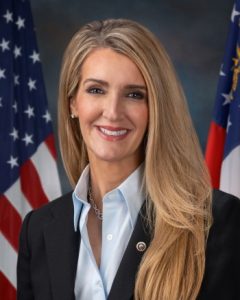
Under its administrator, Kelly Loeffler, right, a corporate executive turned senator from Georgia and vocal supporter of President Trump, the agency has aggressively cut staff. It is rolling back changes made during the Biden administration aimed at easing access to credit for the smallest enterprises, and has lowered targets for how much the federal government should buy from them.
The changes are especially problematic for Black, Hispanic and immigrant entrepreneurs. In the name of eradicating diversity, equity and inclusion practices, the Small Business Administration is shedding programs aimed at helping disadvantaged businesses, including those run by women.
While banks that administer the S.B.A.’s major loan programs have welcomed some of the changes, Democrats and small-business advocates have decried them — especially as the agency is also supposed to inherit a $1.66 trillion student loan portfolio from the largely dismantled Education Department.
“It’s unconscionable that the Trump administration would treat such a vital agency so callously,” said Senator Edward J. Markey of Massachusetts, the ranking Democrat on the Senate Committee on Small Business and Entrepreneurship.
May 22
 The Trump administration on Thursday halted Harvard University’s ability to enroll international students, taking aim at a crucial funding source for the nation’s oldest and wealthiest college in a major escalation in the administration’s efforts to pressure the elite school to fall in line with the president’s agenda.
The Trump administration on Thursday halted Harvard University’s ability to enroll international students, taking aim at a crucial funding source for the nation’s oldest and wealthiest college in a major escalation in the administration’s efforts to pressure the elite school to fall in line with the president’s agenda.
The administration notified Harvard about the decision after a back-and-forth in recent days over the legality of a sprawling records request as part of the Department of Homeland Security’s investigation, according to three people with knowledge of the negotiations. The people spoke on the condition of anonymity because they were not authorized to discuss the matter publicly.
The latest move is likely to prompt a second legal challenge from Harvard, according to another person familiar with the school’s thinking who insisted on anonymity to discuss private deliberations. The university sued the administration last month over the government’s attempt to impose changes to its curriculum, admissions policies and hiring practices.
“I am writing to inform you that effective immediately, Harvard University’s Student and Exchange Visitor Program certification is revoked,” according to a letter sent to the university by Kristi Noem, the homeland security secretary.
About 6,800 international students attended Harvard this year, or roughly 27 percent of the student body, according to university enrollment data. That was up from 19.7 percent in 2010.
The move is likely to have a significant effect on the university’s bottom line. Tuition at Harvard is $59,320 for the school year that begins later this year, and costs can rise to nearly $87,000 when room and board are included. International students tend to pay larger shares of education costs compared with other students.
In a news release confirming the administration’s move, the Department of Homeland Security sent a stark message to Harvard’s international students: “This means Harvard can no longer enroll foreign students, and existing foreign students must transfer or lose their legal status.”

 New York Times, Shock at Harvard After Government Says International Students Must Go, Jenna Russell and Miles J. Herszenhorn, May 22, 2025. Fear and confusion mounted quickly on Thursday as international students, who make up more than a quarter of the university’s enrollment, sought clarity or reassurance.
New York Times, Shock at Harvard After Government Says International Students Must Go, Jenna Russell and Miles J. Herszenhorn, May 22, 2025. Fear and confusion mounted quickly on Thursday as international students, who make up more than a quarter of the university’s enrollment, sought clarity or reassurance.
Just before the Trump administration announced on Thursday that it would bar international students from Harvard, staff members from the university’s International Office met with graduating seniors at the Kennedy School of Government, congratulating them on their degrees — and on surviving the chaos of recent months.
 Then, within minutes of the meeting’s end, news alerts lit up the students’ phones.
Then, within minutes of the meeting’s end, news alerts lit up the students’ phones.
Chaos was breaking out again: Kristi Noem, right, the homeland security secretary, had notified Harvard that its permission  to enroll international students was revoked. With that, the degrees and futures of thousands of Harvard students — and an integral piece of the university’s identity and culture — were plunged into deep uncertainty.
to enroll international students was revoked. With that, the degrees and futures of thousands of Harvard students — and an integral piece of the university’s identity and culture — were plunged into deep uncertainty.
“There are so many students from all over the world who came to Harvard to make it a better place and to change America and change their home countries for the better,” said Karl Molden, a student from Vienna who had just completed his sophomore year. “Now it’s all at risk of falling apart, which is breaking my heart.”
The university has faced rapid-fire aggressions since its president, Alan M. Garber, told the Trump administration in April that Harvard would not give in to demands to change its hiring and admissions practices and its curriculum. After the government froze more than $2 billion in grants, Harvard filed suit in federal court in Boston. Since then, the administration has gutted the university’s research funding, upending budgets and forcing some hard-hit programs to reimagine their scope and mission.
Graduate programs would be hit especially hard. At the Kennedy School, 59 percent of students come from outside the United States. International students make up 40 percent of the enrollment at the T.H. Chan School of Public Health and 35 percent at the Harvard Business School.
Because international students do not qualify for federal financial aid, and typically pay more for their education, they contribute disproportionately to the university’s revenue, in addition to bringing diverse perspectives that enrich campus life and classroom discussions.
“This will destroy the university as we know it,” said Kirsten Weld, a professor who specializes in Latin American history and the president of the Harvard chapter of the American Association of University Professors. “Harvard is situated in the United States physically, but its students and faculty hail from all over the world. That is fundamental to the work and mission of the institution. You cannot take that away and have an institution left at the end of it.”
Fear and confusion spread quickly on Thursday as international students flooded group message boards with anxious questions and refreshed their email inboxes.
Roll Call, Sweeping budget package passes House after weeks of arm-twisting, David Lerman and Caitlin Reilly, May 22, 2025. Last-minute lobbying by Trump, key changes to text woo enough rebellious conservatives.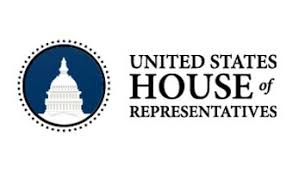 House Republicans passed their “big, beautiful” reconciliation bill early Thursday morning, sending to the Senate a filibuster-proof package that would deliver the major elements of President Donald Trump’s legislative agenda, from tax cuts and border security to lifting the nation’s borrowing limit.
House Republicans passed their “big, beautiful” reconciliation bill early Thursday morning, sending to the Senate a filibuster-proof package that would deliver the major elements of President Donald Trump’s legislative agenda, from tax cuts and border security to lifting the nation’s borrowing limit.
 The 215-214 vote capped weeks of grueling negotiations behind the scenes between House leaders and warring factions of the Republican conference. While moderates in high-tax states sought additional tax relief, hardcore conservatives sought deeper cuts to federal spending, particularly on Medicaid, and a faster repeal on clean energy tax credits they dubbed the “green new scam.”
The 215-214 vote capped weeks of grueling negotiations behind the scenes between House leaders and warring factions of the Republican conference. While moderates in high-tax states sought additional tax relief, hardcore conservatives sought deeper cuts to federal spending, particularly on Medicaid, and a faster repeal on clean energy tax credits they dubbed the “green new scam.”
A federal judge on Thursday blocked President Trump’s executive order aimed at dismantling the Education Department and ordered officials to reinstate thousands of fired employees in a ruling that marked at least a temporary setback for the president and his plans.
The decision from Judge Myong J. Joun of the U.S. District Court for the District of Massachusetts was a preliminary injunction, meaning it will remain in force until the case is resolved or a higher court overturns it.
 The targeted firings of these officials, which have resulted in multiple legal challenges, are part of Mr. Trump’s strategy to prompt the conservative Supreme Court to decide whether a president can remove members of certain independent agencies at will. The Supreme Court on Thursday agreed, for now, to allow Mr. Trump to remove the leaders of two independent agencies who had filed suits contesting their firings.
The targeted firings of these officials, which have resulted in multiple legal challenges, are part of Mr. Trump’s strategy to prompt the conservative Supreme Court to decide whether a president can remove members of certain independent agencies at will. The Supreme Court on Thursday agreed, for now, to allow Mr. Trump to remove the leaders of two independent agencies who had filed suits contesting their firings.
If the court were to eventually side with Mr. Trump, it could grant a president the authority to dismiss members of independent commissions and boards without cause or explanation — and almost certainly imperil the independence of these bodies. The majority of the court appeared to make an exception for the Federal Reserve Board.
“There is a potential for a government that is devoid of a lot of the checks and balances that we have come to rely on,” said Sharon Block, a professor at Harvard Law School and a former member of the National Labor Relations Board, one of the agencies Mr. Trump has targeted.
Out of the 13 targeted firings, nine members of independent boards and two leaders of independent watchdog agencies, each represented below by a bar, were fired before their terms had expired.
Pro Publica, Investigation: More Than a Dozen U.S. Officials Sold Stocks Before Trump’s Tariffs Sent the Market Plunging, Robert Faturechi, Pratheek Rebala and Brandon Roberts, May 22, 2025. Records show well-timed trades by executive  branch employees and congressional aides. Even if they had no insider information, ethics experts say such trading undermines faith in government and the markets.
branch employees and congressional aides. Even if they had no insider information, ethics experts say such trading undermines faith in government and the markets.
The week before President Donald Trump unveiled bruising new tariffs that sent the stock market plummeting, a key official in the agency that shapes his administration’s trade policy sold off as much as $30,000 of stock.
Two days before that so-called “Liberation Day” announcement on April 2, a State Department official sold as much as $50,000 in stock, then bought a similar investment as prices fell.
And just before Trump made another significant tariff announcement, a White House lawyer sold shares in nine companies, records show.
More than a dozen high-ranking executive branch officials and congressional aides have made well-timed trades since Trump took office in January, most of them selling stock before the market plunged amid fears that Trump’s tariffs would set off a global trade war, according to a ProPublica review of disclosures across the government.
All of the trades came shortly before a significant government announcement or development that could influence stock prices. Some who sold individual stocks or broader market funds used their earnings to buy investments that are generally less risky, such as bonds or treasuries. Others appear to have kept their money in cash. In one case unrelated to tariffs, records show that a congressional aide bought stock in two mining companies shortly before a key Senate committee approved a bill written by his boss that would help the firms.
Using nonpublic information learned at work to trade securities could violate the law. But even if such actions aren’t influenced by insider knowledge, ethics experts warn that trading stock while the federal government’s actions move markets can create the appearance of impropriety. The recent trades by government officials, they said, underscore that there should be tighter rules on how, or if, federal employees can trade securities.
“The executive branch is routinely engaged in activities that will move the market,” said Tyler Gellasch, who, as a congressional aide, helped write the law on insider trading by government officials and now runs a nonprofit focused on transparency and ethics in capital markets. “I don’t think members of Congress and executive branch officials should be trading securities. To the extent they have investment holdings, it should be managed by someone else outside their purview. The temptation to put their own personal self-interest ahead of their duties to the country is just too high.”
There is no evidence that the trades by government officials identified by ProPublica were informed by nonpublic information. Still, when government officials trade stock at opportune times, Gellasch said, even if it was based on luck and not inside information, it undermines trust in government and the markets
“It then becomes a thing where our markets look rigged,” he said.
In response to questions from ProPublica, the officials who made the trades either said they had no insider information that would help them time their decisions or did not respond to questions about the transactions.
Questions about trades based on nonpublic information have swirled around Congress for years and began anew after Trump’s tariffs announcements led to wild swings in the market. Lawmakers’ trades are automatically posted online and, after multiple congressional stock-trading scandals, are widely scrutinized as soon as they become public.
But less attention is paid to the trades of executive branch employees and congressional aides whose work could give them access to confidential information likely to influence markets once made public.
Last week, ProPublica reported that Attorney General Pam Bondi sold between $1 million and $5 million worth of shares of Trump Media, the president’s social media company, on April 2. After the market closed that day, Trump unveiled his “Liberation Day” tariffs, sending the market reeling. Bondi’s ethics agreement required her to sell by early May, but why she sold on that date is unclear. She has yet to answer questions about the trades, and the Justice Department did not respond to requests for comment.
Earlier this week, ProPublica reported that Sean Duffy, Trump’s transportation secretary, sold shares in almost three dozen companies on Feb. 11, two days before Trump announced plans to institute wide-ranging “reciprocal” tariffs. A Transportation Department spokesperson said Duffy’s account manager made the trades and that Duffy had no input on the timing.
Using insider government information to buy or sell securities could violate the Stop Trading on Congressional Knowledge, or STOCK, Act. But no cases have ever been brought under the law, and some legal experts have doubts it would hold up to scrutiny from the courts, which in recent years have generally narrowed what constitutes illegal insider trading.
Thousands of government employees are required to file disclosure forms if they sell or buy securities worth more than $1,000. In many cases, the records are available only in person in Washington, D.C., or through a records request. The documents do not include exact amounts bought or sold but instead provide a broad range for the totals of each transaction.
ProPublica examined hundreds of records for trades shortly before major tariff announcements or other key government decisions. Trump, of course, repeatedly said on the campaign trail that he intended to institute dramatic tariffs on foreign imports. But during the first weeks of his term, investors were not panic selling, seeming to assume that his campaign promises were bluster. Several tariff announcements by Trump early on shook the markets, but it wasn’t until he detailed his new tariffs on April 2 that stocks dived.
May 21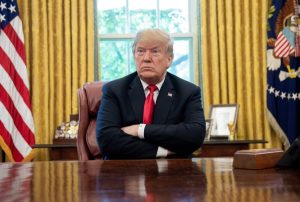 The Hartmann Report, Investigative Commentary: The Biggest Political Con of
The Hartmann Report, Investigative Commentary: The Biggest Political Con of  the Last Century Unmasked, Thom Hartmann, right, May 21, 2025. Why the destruction of public institutions, the middle class, and government itself may not be a mistake — but the mission.
the Last Century Unmasked, Thom Hartmann, right, May 21, 2025. Why the destruction of public institutions, the middle class, and government itself may not be a mistake — but the mission.
Neal deGrasse Tyson makes a very relevant point this week:
“If a foreign adversary snuck into our Federal budget and cut science research and education the way we’re cutting it ourselves — strategically undermining America’s long-term health, wealth, and security — we would likely consider it an act of war.”
Trump’s administration just said you can’t get the Covid vaccine unless you’re over 65 or sick, setting up America for more death and disease. As Noah Berlatsky notes in his great Substack newsletter:
“This is the latest effort by Trump to try to kick start a major US pandemic and degrade the health and welfare of the country. Trump has also rolled back food testing, including testing for bacteria in infant formula. He’s made major cuts at the FAA, leading to fears for airline safety—and a number of dramatic airline safety failures already may be related to the destruction of capacity.
 Cuts at the NOAA may diminish the ability to warn about dangerous weather events. The Republican proposals for Medicaid cuts are likely to lead to tens of thousands of deaths. And of course Trump’s senseless tariffs are increasing inflation, destroying jobs, and could still easily end us in a recession.“
Cuts at the NOAA may diminish the ability to warn about dangerous weather events. The Republican proposals for Medicaid cuts are likely to lead to tens of thousands of deaths. And of course Trump’s senseless tariffs are increasing inflation, destroying jobs, and could still easily end us in a recession.“
But why? What the hell is going on here?
House Republican leaders labored on Wednesday to win over holdouts for their sweeping domestic policy bill to deliver President Trump’s agenda, slogging through a marathon overnight committee session to prepare the measure for a floor vote.
The powerful Rules Committee began meeting after midnight on Wednesday morning and continued debating the measure as morning broke, while Republicans worked behind the scenes to hammer out enough concessions to cobble together the votes in their fractious ranks to push it through the House.
But as the session dragged into its eighth hour, they had yet to release any new language and the panel had yet to vote to send the legislation to the floor.
Any changes to what Mr. Trump calls the “big, beautiful bill,” would spring from extensive negotiations between Speaker Mike Johnson and Republicans from disparate factions who have so far refused to back the legislation.
Paul Krugman via Substack, Economic Analysis: A Liz Truss Moment for America? Paul Krugman, right, May 21, 2025. Despite hitting a few speed bumps, Congress seems likely to pass Donald Trump’s “big, beautiful bill” — legislation that combines big tax cuts for the rich with vicious cuts in social programs — within a few days.
Paul Krugman, right, May 21, 2025. Despite hitting a few speed bumps, Congress seems likely to pass Donald Trump’s “big, beautiful bill” — legislation that combines big tax cuts for the rich with vicious cuts in social programs — within a few days.
This momentous move will take place with almost no public discussion; the final hearing of the House Rules Committee began at 1 AM this morning. That’s right, 1 AM. We’re clearly watching a bum’s rush, an attempt to ram this atrocity through before the public understands what’s happening.
I have already focused on the bill’s cruelty. It’s also deeply irresponsible, undermining America’s hard-won reputation as a country that honors its obligations.
The cuts to Medicaid and food stamps won’t come close to offsetting the revenue loss from the tax cuts for the rich. Neither will revenue from tariffs. And can we all now acknowledge that DOGE’s promise to eliminate hundreds of billions in “waste, fraud and abuse” hasn’t just failed? It has ended up being a complete waste of time, which it has tried to conceal with fraudulent claims of achievement, all while abusing dedicated civil servants and driving them out of government in ways that will impoverish America in the long run — and maybe not that long. We’re a world leader in education, science and technology that is systematically destroying the very basis of our success.
So we’re looking at a large increase in an already high budget deficit when we’re already at full employment, interest rates are already at multiyear highs, and future growth prospects are declining.
Letters from An American via Substack, Historical Commentary: May 20, 2025 [Trump Officials Face Senate], Heather Cox Richardson, right, May 21, 2025. Today was a rough day for administration officials on Capitol Hill as Senate committees held hearings on the 2026 budget requests for the Department of Homeland Security, the Department of Health and Human Services, and the Department of State.
Officials Face Senate], Heather Cox Richardson, right, May 21, 2025. Today was a rough day for administration officials on Capitol Hill as Senate committees held hearings on the 2026 budget requests for the Department of Homeland Security, the Department of Health and Human Services, and the Department of State.
 The Senate Finance Committee also held a hearing for Trump’s nominee to be Commissioner of Internal Revenue, former Missouri representative William “Billy” Long. Democrats came prepared and demanded answers that the department secretaries and nominee were either unable or unwilling to give.
The Senate Finance Committee also held a hearing for Trump’s nominee to be Commissioner of Internal Revenue, former Missouri representative William “Billy” Long. Democrats came prepared and demanded answers that the department secretaries and nominee were either unable or unwilling to give.
Secretary of Homeland Security Kristi Noem was testifying before the Senate Homeland Security and Governmental Affairs Committee about the Department of Homeland Security’s budget for fiscal year 2026. When Senator Maggie Hassan (D-NH) asked her to define “habeas corpus,” Noem’s response indicated she has no understanding of the nation’s fundamental law.
“Habeas corpus is a constitutional right that the president has to be able to remove people from this country,” Noem said. Hassan corrected her: “Habeas corpus is the legal principle that requires that the government provide a public reason for detaining and imprisoning people. If not for that protection, the government could simply arrest people, including American citizens, and hold them indefinitely for no reason. Habeas corpus is the foundational right that separates free societies like America from police states like North Korea.”
Noem’s habit in these hearings is simply to ignore questions and to attack, and she tried that with Hassan, suggesting that the president has the right to suspend habeas corpus if circumstances require it.

 New York Times, F.D.A. Poised to Restrict Access to Covid Vaccines, Christina Jewett and Apoorva Mandavilli, May 21, 2025 (print ed.). Agency leaders said there was evidence to justify approval only for older people and those with medical conditions. Many others may not be able to get the shots.
New York Times, F.D.A. Poised to Restrict Access to Covid Vaccines, Christina Jewett and Apoorva Mandavilli, May 21, 2025 (print ed.). Agency leaders said there was evidence to justify approval only for older people and those with medical conditions. Many others may not be able to get the shots.
The Food and Drug Administration will permit use of Covid vaccines by adults over 65 and those with certain medical conditions in the fall, but may require additional studies before approving the shots for healthy Americans younger than 65, agency officials said on Tuesday.
At this point, the additional doses offer “uncertain” benefits to many young and middle-aged people who have already been vaccinated or have had Covid, Dr. Vinay Prasad, the F.D.A.’s vaccine division chief, and Dr. Martin Makary, the agency’s commissioner, wrote in The New England Journal of Medicine.
“The F.D.A. will approve vaccines for high-risk persons and, at the same time, demand robust, gold-standard data on persons at low risk,” the officials wrote.
Until now, annual Covid shots were recommended for everyone aged 6 months and older. Scientific advisers to the F.D.A. are set to meet Thursday to decide on the composition of the Covid vaccine to be made available in the fall.
During the pandemic, both Dr. Prasad and Dr. Makary sharply criticized vaccine mandates and other public health measures intended to turn back the coronavirus.
 Robert F. Kennedy Jr., right, the health secretary, is a longtime vaccine skeptic who spent years campaigning against the Covid shots, claiming falsely at one point that the Covid vaccines have killed more people than the virus.
Robert F. Kennedy Jr., right, the health secretary, is a longtime vaccine skeptic who spent years campaigning against the Covid shots, claiming falsely at one point that the Covid vaccines have killed more people than the virus.
As a measles outbreak spreads through Texas and other states this year, Mr. Kennedy has offered only muted support for vaccination and has repeatedly raised questions about the safety of the measles shot while suggesting falsely that miracle treatments like cod liver oil were available.
During a livestreamed “town hall” on Tuesday afternoon, Dr. Prasad said he thought the new approach to Covid vaccination was “a reasonable compromise,” leaving the shots available to many Americans “but also generating evidence.”Chasing Tax Cuts, Trump and Republicans Want to Make States Pay, Tony Romm, May 13, 2025. https://www.nytimes.com/2025/05/13/us/politics/trump-republicans-tax-cuts-spending-states.html G.O.P. leaders are exploring cuts to federal aid, leaving some states fearful that their budgets cannot absorb billions of dollars in new costs.
Across the country, state leaders are beginning to express alarm about the budgetary fallout from President Trump’s economic agenda, warning that they will not be able to pick up the bill if the federal government reduces its funding for major public services. To governors and other officials, many of whom are Democrats, the fear is that Washington could sharply curtail federal programs that help states improve their infrastructure, respond to natural disasters, expand education and provide a suite of health, housing and nutrition benefits to the poor.
May 20McPherson College, in the middle of Kansas wheat country, is a small school that accepts the vast majority of its applicants, many from surrounding towns. It is best known for its degree in classic car restoration.
 The college might still end up a potential target in a Republican plan aimed primarily at the Ivy League, which would impose billions in taxes on the investment returns of several dozen private colleges and universities.
The college might still end up a potential target in a Republican plan aimed primarily at the Ivy League, which would impose billions in taxes on the investment returns of several dozen private colleges and universities.
The goal of the proposal, laid out in a report last week from Republicans on the House Ways and Means Committee, is to hold accountable “woke, elite universities that operate more like major corporations.” McPherson could be on the list because it has an endowment of $1.6 billion, thanks to an anonymous donation a few years ago.
An analysis by The New York Times shows that at least 58 schools would potentially be subject to the tax, based on the size of their endowments and enrollments. The list includes highly selective and wealthy institutions like Harvard and the Massachusetts Institute of Technology, but also smaller schools like Berry College in Georgia and DePauw University in Indiana.
The tax idea has been discussed by Republicans since at least President Trump’s first term, when a 1.4 percent tax was imposed on some  endowments. Momentum to broaden it grew in 2023, when JD Vance, then a senator from Ohio, proposed a 35 percent tax on endowments of $10 billion and larger.
endowments. Momentum to broaden it grew in 2023, when JD Vance, then a senator from Ohio, proposed a 35 percent tax on endowments of $10 billion and larger.
The tax, part of the House proposal that President Trump has called the “big, beautiful bill,” would be tiered depending on the size of the school’s endowment and enrollment, with a top rate of 21 percent for those with endowments of at least $2 million per student.
The targets of Trump’s assaults include the law, higher education, medical research, ethical standards, America’s foreign alliances, free speech, the civil service, religion, the media and much more.
J. Michael Luttig, a former federal appeals court judge appointed by President George H.W. Bush, succinctly described his own view of the Trump presidency, writing by email that there has never before “been a U.S. president who I consider even to have been ‘destructive,’” let alone a president who has intentionally and deliberately set out to destroy literally every institution in America, up to and including American democracy and the rule of law.”
Some of the damage Trump has inflicted can be repaired by future administrations, but repairing relations with American allies, the restoration of lost government expertise and a return to productive research may take years, even with a new and determined president and Congress.
Let’s look at just one target of the administration’s vendetta, medical research. Trump’s attacks include cancellation of thousands of grants, cuts in the share of grants going to universities and hospitals; and proposed cuts of 40 percent or more in the budgets of the National Institutes of Health, the Centers for Disease Control and Prevention and the National Science Foundation.
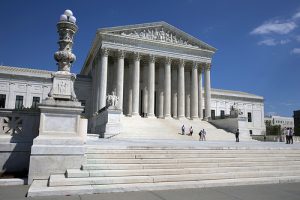 The Hartmann Report, Commentary: The Final Checkmate: Republicans Move to Destroy the Balance of Powers, Thom Hartmann, right, May 20, 2025. In a legal sleight of hand, Republicans want to strip judges of their power to enforce rulings
The Hartmann Report, Commentary: The Final Checkmate: Republicans Move to Destroy the Balance of Powers, Thom Hartmann, right, May 20, 2025. In a legal sleight of hand, Republicans want to strip judges of their power to enforce rulings  — because holding Trump in contempt might actually work.
— because holding Trump in contempt might actually work.
With almost no mention by our mainstream corporate press, Republicans in the House of Representatives are proposing to end all checks on the power of Donald Trump, effectively ending the American experiment of a democratic republic. It’s shockingly anti-American.
Since the only branch of government standing against Trump right now is the courts, Republicans believe they’ve found a way to end that resistance. Here’s the backstory.
The grand invention of our Founders, cribbed from the Iroquois Confederacy and following an outline Montesquieu suggested (based on his reading about Native Americans), was a three-branches-of-government system where each branch would act as a check on the power of the other two.
Right now the Trump administration is pretty clearly in contempt of at least one Supreme Court order and several from lower courts around the issue of deporting Venezuelan nationals to a brutal concentration camp in El Salvador.
Both Judge Boasbert and Judge Xinis have implied that they may hold Trump’s lawyers in contempt unless they provide answers to their questions about why they’re refusing to comply with court orders.
Again, the power of contempt is the only “real” enforcement power the courts have, the only way they can make their orders stick. They can start by fining or jailing Trump’s lawyers who are standing before them, and work their way up from there all the way, arguably, to the president himself.
So far, Trump has effectively neutered Congress; there’s not a single elected Republican who’s willing to seriously challenge his questionable actions, particularly his denial of due process to foreign students and undocumented aliens.
Which leaves only the courts as a check on his power.
Which is apparently why toady Republicans in the House have inserted the following language into their “Big Brutal Bill” (as Ro Khanna calls it) that provides for trillions in tax breaks for billionaires like Trump, Musk, Zuckerberg, Bezos, etc.:
“No court of the United States may use appropriated funds to enforce a contempt citation for failure to comply with an injunction or temporary restraining order if no security was given when the injunction or order was issued….”
In plain language, what this says is that no court can enforce a contempt charge against Trump or his people unless the person or group who brought the charges against the president or his administration had first posted a cash bond.
So, here’s the kicker: in civil proceedings, like virtually 100% of the cases Trump is involved with regarding his abuse of power and refusal to acknowledge due process, there is no bond involved.
Thus, if this becomes law, Congress will have stripped the courts — including the Supreme Court — of their ability to use the power of contempt to enforce their rulings. This is way beyond Andrew Jackson’s worst fever dreams.
With this single stroke, Trump will have crowned himself king. No congress and no court can stop him. Even if Congress were to try, it would take the courts to enforce their hearings, investigations, subpoenas, and laws, and without the power of contempt the courts will have lost that ability.
Democracy Project, Opinion: The political prosecution of Rep. McIver is just the beginning, Marc Elias, below right, May 20, 2025. The weaponization of our government has officially begun.
beginning, Marc Elias, below right, May 20, 2025. The weaponization of our government has officially begun.
Ever since he won the 2024 election, I have predicted that it was 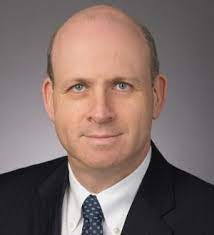 only a matter of time before Donald Trump used the full powers of the federal government to target his political opponents. Last night, time ran out.
only a matter of time before Donald Trump used the full powers of the federal government to target his political opponents. Last night, time ran out.
In an oddly worded statement, the Department of Justice announced its first criminal prosecution of a political opponent. New Jersey’s Acting U.S. Attorney Alina Habba, revealed she was charging Democratic Congresswoman LaMonica McIver with assault related to her recent visit to a federal immigration detention center.
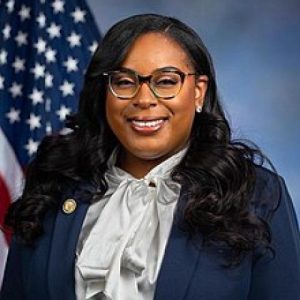 On May 9, McIver, left, and two other members of Congress were making a routine, lawful oversight visit to a federal facility when they were blocked by federal agents for several hours. At first, the government tried to demonize Newark’s mayor, Ras Baraka, who joined the members of Congress on the visit — threatening him with criminal trespass charges. While those charges have since been dropped, the Trump administration isn’t backing down. The crisis has now escalated with the prosecution of a member of Congress for simply doing her job.
On May 9, McIver, left, and two other members of Congress were making a routine, lawful oversight visit to a federal facility when they were blocked by federal agents for several hours. At first, the government tried to demonize Newark’s mayor, Ras Baraka, who joined the members of Congress on the visit — threatening him with criminal trespass charges. While those charges have since been dropped, the Trump administration isn’t backing down. The crisis has now escalated with the prosecution of a member of Congress for simply doing her job.
Habba, who has no prior prosecutorial experience, was previously general counsel to a parking garage company before joining the motley group of  Trump lawyers representing him in various civil and criminal cases. In that role, she proved to be an incompetent but loyal foot soldier for Trump. After a brief stint in the White House, she was named Acting U.S. Attorney for New Jersey.
Trump lawyers representing him in various civil and criminal cases. In that role, she proved to be an incompetent but loyal foot soldier for Trump. After a brief stint in the White House, she was named Acting U.S. Attorney for New Jersey.
While McIver’s prosecution certainly isn’t the first act of political weaponization from the administration, it is by far the most dangerous. Previously, the buffoonish Ed Martin – who was briefly the U.S Attorney for Washington, D.C., before he was replaced by Jeanine Pirro – sent out bogus letters with vaguely worded threats to various elected officials. But Martin never actually prosecuted anyone.
And though the White House has issued a series of threatening executive orders targeting individuals, none of those actions have yielded public criminal investigations, let alone charges. Even targeting law firms and universities, which imposed financial and business costs, did not include criminal prosecution.
While we’re only starting to see political prosecutions now, the alarm bells have been ringing since day one. Attorney General Pam Bondi doesn’t even try to feign independence from the White House and makes no secret of her loyalty to Trump. Several of her deputies, like Habba, are former members of Trump’s criminal defense team. The guardrails that once protected against misuse of the Department of Justice have been deliberately dismantled.
To top it off, it’s not surprising that the first prosecution targets a Black woman, recently elected to Congress, who was attempting to conduct lawful oversight at an immigration facility. The administration is no doubt hoping that the Congresswoman is too unknown to attract political support, and that the circumstances surrounding the incident are too murky to engage a distracted public.
We cannot allow that to be the case.
Only eight days after Trump took office, I warned that there would be political retribution and outlined a specific strategy that we must now deploy: “It is incumbent on the media, civil society groups, judges, and individual citizens to adopt a presumption of skepticism when it is told that a political opponent of Trump is under an ethical or legal cloud.”
Most importantly, the public needs to destigmatize those being attacked by Trump. We should not only give the Congresswoman the presumption of innocence — we should assume the U.S. Attorney’s office is acting with malice and in bad faith.
A federal judge in Boston said on Tuesday that the Trump administration had apparently violated an order he issued in April by flying a Burmese immigrant to South Sudan without first giving him enough time to challenge his removal over fears about being sent to a country not his own.
The stern remarks by the judge, Brian E. Murphy, came at a hearing in Federal District Court in Boston where immigration lawyers raised concerns that at least one other immigrant had also been flown to South Sudan without proper due process.
Meidas Touch Network, Opinion: CBS Gave US ALL the Middle Finger… MEIDAS RESPONDS!! Ben Meiselas, May 20, 2025. I am pissed off!!
RESPONDS!! Ben Meiselas, May 20, 2025. I am pissed off!!
It appears that CBS and its parent company Paramount are moving closer to settling a BS lawsuit filed by Donald Trump—to pay Trump directly as a quid pro quo for the U.S. government approving the merger between Paramount and a company called Skydance. The merger would put approximately $5 billion in cash into the hands of Paramount shareholders, including its controlling shareholder Shari Redstone.
 Shari Redstone inherited Paramount—once called Viacom—from her dad, Sumner Redstone. Shari wants to sell her shares to Skydance so she can make billions.
Shari Redstone inherited Paramount—once called Viacom—from her dad, Sumner Redstone. Shari wants to sell her shares to Skydance so she can make billions.
The merger requires approval by various United States government agencies, like the FCC. Trump’s FCC has threatened to withhold approval of the merger.
Trump personally sued Paramount and CBS (which owns 60 Minutes) in Texas federal court, forum-shopping to get a Trump-appointed judge. He claims he was injured under Texas consumer laws because 60 Minutes lightly edited its interview with former VP Kamala Harris in October 2024.
Trump was too scared to sit for an interview with 60 Minutes in this election cycle. Yet he claims he was injured to the tune of $20 billion based on how CBS presented its interview with Kamala Harris.
May 19 Paul Krugman via Substack, Opinion: Attack of the Sadistic Zombies, Paul Krugman, right, May 19, 2025. The GOP budget is incredibly cruel — and that’s the point.
May 19, 2025. The GOP budget is incredibly cruel — and that’s the point.
Republicans in Congress, taking their marching orders from Donald Trump, are on track to enact a hugely regressive budget — big tax giveaways to the wealthy combined with cruel cuts in programs that serve lower-income Americans. True, the legislation suffered a setback last week, initially failing to make it out of committee. But that was largely because some right-wing Republicans didn’t think the benefit cuts were vicious enough.
 But this reconciliation bill — that is, legislation structured in such a way that it can’t be filibustered and may well pass with no Democratic votes — is different in both degree and kind from what we’ve seen before: Its cruelty is exceptional even by recent right-wing standards. Furthermore, the way that cruelty will be implemented is notable for its reliance on claims we know aren’t true and policies we know won’t work — what some of us call zombie ideas.
But this reconciliation bill — that is, legislation structured in such a way that it can’t be filibustered and may well pass with no Democratic votes — is different in both degree and kind from what we’ve seen before: Its cruelty is exceptional even by recent right-wing standards. Furthermore, the way that cruelty will be implemented is notable for its reliance on claims we know aren’t true and policies we know won’t work — what some of us call zombie ideas.
And it’s hard to avoid the sense that the counterproductive viciousness is actually the point.
The House Reconciliation Bill, by slashing benefits — especially Medicaid — will cause immense, almost inconceivable hardship to the bottom 40 percent of Americans, especially the poorest fifth.
Medicaid, in case anyone needs reminding, is the national health insurance program for low-income Americans who probably don’t have any other way to pay for medical care. In 2023 Medicaid covered 69 million Americans, far more than Medicare (which covers seniors), including 39 percent of children.
Providing health care to children, by the way, isn’t just about social justice and basic decency. It’s also good economics: Children who receive adequate care grow up to be more productive adults. Among other things they end up paying more taxes, so Medicaid for children almost surely pays for itself.
And although Republican legislation apparently won’t explicitly target childrens’ care, it will impose paperwork requirements that will cause both children and their parents to lose coverage.
Paul Krugman is a Neo-Keynesian economist, Nobel laureate, academic, author, and media columnist, known for his work on international trade theory and economic geography. Considered one of the world’s most influential economists, Krugman is renowned for redefining existing theories of international trade and either founding or co-founding several new disciplines in international economics.
May 16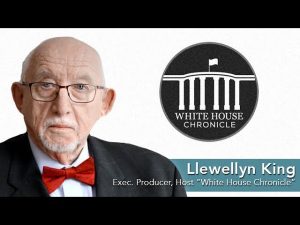 White House Chronicle, Commentary: How Technology Built the British Empire, Llewellyn King, above, May 16, 2025. As someone who grew up in the last days of the British Empire, I am often asked how it was that so few people controlled so much of the world for so long?
White House Chronicle, Commentary: How Technology Built the British Empire, Llewellyn King, above, May 16, 2025. As someone who grew up in the last days of the British Empire, I am often asked how it was that so few people controlled so much of the world for so long?
 The simple answer is technology underpinned the British Empire, from its tentative beginnings in the 17th century to its global dominance in the 18th and 19th centuries and most of the first half of the 20th century.
The simple answer is technology underpinned the British Empire, from its tentative beginnings in the 17th century to its global dominance in the 18th and 19th centuries and most of the first half of the 20th century.
America filled the gap left by Britain as the dominant force in the world, admired, copied and envied. But underpinning that state of esteem and  financial ease was tech leadership, medical leadership, and cultural leadership through film and television. America became the techno supremo.
financial ease was tech leadership, medical leadership, and cultural leadership through film and television. America became the techno supremo.
Now government research funding is being butchered across the board from advanced energy to, most shameful of all, the philistine slashing of the National Institutes of Health’s research budgets. Changing times doomed the British Empire, America’s future is at stake and it will be determined by technology and medicine. If we underfund research, the future is known.
May 14 Democrat, who accused him of “destroying the crown jewels of our health system” and of violating the law by cutting funding appropriated by Congress for lifesaving medical research.
Democrat, who accused him of “destroying the crown jewels of our health system” and of violating the law by cutting funding appropriated by Congress for lifesaving medical research.
“We are not withholding money for lifesaving research,” Mr. Kennedy insisted. After a fiery back and forth, Representative Rosa DeLauro of Connecticut, the top Democrat on the House Appropriations Committee, looked disgusted. “Unbelievable,” she said, shaking her head. “Unbelievable.”
He faced similar accusations from Representative Steny H. Hoyer of Maryland, the former Democratic leader.
 The sharp exchanges on Wednesday morning came during Mr. Kennedy’s testimony before the appropriations panel, his first appearance on Capitol Hill since becoming health secretary. He will also appear on Wednesday afternoon before the Senate health committee, whose Republican chairman will call on him to explain to Americans how his reforms “will make their lives easier, not harder.”
The sharp exchanges on Wednesday morning came during Mr. Kennedy’s testimony before the appropriations panel, his first appearance on Capitol Hill since becoming health secretary. He will also appear on Wednesday afternoon before the Senate health committee, whose Republican chairman will call on him to explain to Americans how his reforms “will make their lives easier, not harder.”
The back-to-back appearances were scheduled so that Mr. Kennedy could promote President Trump’s budget for the Department of Health and Human Services for the next fiscal year.
But he is also facing sharp questions about the huge reductions he has already imposed on research grants and jobs, which key Democrats have condemned as part of what they call Mr. Trump’s “war on science.”
 The Bulwark, Commentary: Autocrats, Kleptocrats, Plutocrats… Oh My! William Kristol, below right, May 14, 2025. What a spectacle! There they were yesterday, assembled in Riyadh, Saudi Arabia, autocrats and plutocrats and kleptocrats, gathered to enjoy each other’s company under the
The Bulwark, Commentary: Autocrats, Kleptocrats, Plutocrats… Oh My! William Kristol, below right, May 14, 2025. What a spectacle! There they were yesterday, assembled in Riyadh, Saudi Arabia, autocrats and plutocrats and kleptocrats, gathered to enjoy each other’s company under the  benevolent patronage of their host, His Royal Highness Crown Prince Mohammed bin Salman.
benevolent patronage of their host, His Royal Highness Crown Prince Mohammed bin Salman.
Saudi Arabia was an appropriate destination for Donald Trump’s first foreign trip in his second term as president. He chose to visit not a democracy but a despotism; not a free nation but one of the world’s most unfree; not a land of tolerance but of repression. And Trump made it clear yesterday that he did not consider these features unfortunate or undesirable aspects of life under the House of Saud. There was not a hint of criticism or even of hesitation in the fulsome praise Trump heaped upon his hosts. The American president admires the Saudi achievements in autocracy, plutocracy, and kleptocracy.
Lincoln Square, Commentary, Here is a specific thing you can do to fight Trump’s politicization of public services, Don Moynihan, May 14, 2025. Feeling overwhelmed? That’s OK. Here’s your guide to fighting back against Trump’s war on federal workers and basic competence.
That’s OK. Here’s your guide to fighting back against Trump’s war on federal workers and basic competence.
Trump’s maximalist strategy of firing off one executive action after another seeks to overwhelm us. Finding some tangible way to respond sometimes feels impossible.
So, here is something that you can do: Take the time you would have spent complaining about politics online, and use it to write a comment opposing the proposed Office of Personnel Management rule to politicize public services. You can do it in 5 minutes. Deadline is May 23rd!
 Why should you do this? The proposed rule seeks to reinstate Schedule F, Trump’s never implemented plan to institutionalize political control and loyalty tests for the career bureaucracy by turning 50,000 or more career civil servants into political appointees. Federal comments really do matter. By law, they must be read by the administration, and substantive comments require a response. Failure to do so can see the rule tossed out by courts.
Why should you do this? The proposed rule seeks to reinstate Schedule F, Trump’s never implemented plan to institutionalize political control and loyalty tests for the career bureaucracy by turning 50,000 or more career civil servants into political appointees. Federal comments really do matter. By law, they must be read by the administration, and substantive comments require a response. Failure to do so can see the rule tossed out by courts.
It’s easy: Enter a comment here. No log in. Just click on the “submit a public comment” button. You can enter text, or upload a document. The volume of opposing comments matters, so writing something short and sweet is great. You don’t need to read the rule in depth or be an expert. The proposed rule is bad and protecting nonpartisan civil servants is good. See more details below or take a look at the comments people have already posted.
More detailed and informed comments are even better. One thing that is different from the first time Schedule F was introduced is that we now have a track record showing how Trump’s much more politicized mismanagement of the federal government is having negative effects, and handing him more power would be a disaster. I am especially appealing to people with deep knowledge of policies and management to explain how Schedule F would hurt their domain of expertise. Please, please, please weigh in to provide actual information about how providing protections for career officials will protect against political abuses. If a bunch of people with real and credible experience comment, it becomes harder for the administration and judges to ignore us. I will leave comments to this piece open, so people can share their comments if they wish.
May 13 Across the country, state leaders are beginning to express alarm about the budgetary fallout from President Trump’s economic agenda, warning that they will not be able to pick up the bill if the federal government reduces its funding for major public services. To governors and other officials, many of whom are Democrats, the fear is that Washington could sharply curtail federal programs that help states improve their infrastructure, respond to natural disasters, expand education and provide a suite of health, housing and nutrition benefits to the poor.
Across the country, state leaders are beginning to express alarm about the budgetary fallout from President Trump’s economic agenda, warning that they will not be able to pick up the bill if the federal government reduces its funding for major public services. To governors and other officials, many of whom are Democrats, the fear is that Washington could sharply curtail federal programs that help states improve their infrastructure, respond to natural disasters, expand education and provide a suite of health, housing and nutrition benefits to the poor.
 administration announced it was pulling an additional $450 million in funding from Harvard University this week, after freezing $2.2 billion in grant funding last week. The White House called the cuts punitive as a result of a failure of Harvard to address race discrimination and antisemitism on its campus.
administration announced it was pulling an additional $450 million in funding from Harvard University this week, after freezing $2.2 billion in grant funding last week. The White House called the cuts punitive as a result of a failure of Harvard to address race discrimination and antisemitism on its campus.
 The cuts represent funding from eight different government agencies, including from the Department of Education and Department of Health and Human Services, which have typically given Harvard and other Ivy League schools funding for advanced research in medical sciences.
The cuts represent funding from eight different government agencies, including from the Department of Education and Department of Health and Human Services, which have typically given Harvard and other Ivy League schools funding for advanced research in medical sciences.
“There is a dark problem on Harvard’s campus, and by prioritizing appeasement over accountability, institutional leaders have forfeited the school’s claim to taxpayer support,” the Trump Joint Task Force to Combat Anti-Semitism said in a statement.
“Harvard, and its leadership group who are tainted by the egregious infractions under its watch, faces a steep, uphill battle to reclaim its legacy as a lawful institution and center of academic excellence.” Harvard, “will not surrender its independence or relinquish its constitutional rights,” university President Alan Garber said recently. “Neither Harvard nor any other private university can allow itself to be taken over by the federal government.”
May 11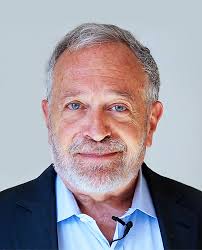 Robert Reich via Substack, Commentary: Moral clarity in a time of monsters, Robert Reich, right, May 11, 2025. Former U.S. Secretary of Labor Robert Reich is a professor at the University of California at Berkeley.
Robert Reich via Substack, Commentary: Moral clarity in a time of monsters, Robert Reich, right, May 11, 2025. Former U.S. Secretary of Labor Robert Reich is a professor at the University of California at Berkeley.
We are living in a time when monsters roam the globe: Trump, Putin, Netanyahu, Xi, Modi, Erdoğan, and others.
They are destroying countless lives, fueling hate, spreading fear.
What is our moral obligation as human beings in the face of this? How do we maintain integrity in a time of monsters?
Some people I know are in denial. They’ve stopped listening to the news. They’d rather not know what the monsters are doing.
I understand. It’s all too painful — the abductions and deportations in the United States, horrific deaths in Ukraine and Gaza, abuses of human rights in China’s Xinjiang region and in Turkey, violence in Kashmir.
Why learn of it? they ask. Nothing can be done anyway, they say.
Others are immobilized with grief. They cannot abide the inhumanity and suffering, so they’ve collapsed into despair.
Nothing will be done, they say.
Some others I know are resigned to what’s happening and believe their only real choice is to keep quiet. They don’t speak out against the monsters for fear of reprisal.
It’s the only practical choice, they say.
These are all completely understandable responses. If you are in denial, despair, or submissive silence, you should not feel guilty. You are only human.
But it’s also important to know that these attitudes help the monsters thrive and grow.
When most of us believe that nothing can be done, or assume nothing will be done, or think that silence is the only practical choice, we fuel more monstrosity.
We are in a national emergency, as is much of the rest of the world. If you are in denial or despair or in fearful silence, you are hardly alone.
But if enough of us stand up as Emily did, the monsters cannot win. We will prevail. We will end up with a democracy stronger than it was before the time of monsters.
Robert B. Reich is Professor of Public Policy emeritus at the Goldman School of Public Policy at the University of California, Berkeley. He has served in three national administrations, including as secretary of labor under President Bill Clinton, for which Time Magazine named him one of the ten most effective cabinet secretaries of the twentieth century.
Dartmouth College is not on the Trump administration’s target lists and its funding remains intact, unlike the rest of its peers. Its president may be why.
Instead, she wrote her own letter to her campus, saying that higher education institutions should strive to do better, “to further our standing as a trusted beacon for knowledge and truth.”
“Reflection does not mean capitulation,” she added.
It is the kind of message, her critics and supporters say, that has so far helped to keep Dartmouth out of the Trump administration’s cross hairs.
Six of the eight Ivies are facing major funding threats, to the tune of billions of dollars, as the federal government attempts to punish them over concerns about antisemitism and other issues. Harvard University alone could lose over $2 billion. And every Ivy but Dartmouth is being investigated over allegations that they have allowed antisemitism on campus.
The onslaught is unlike anything universities have experienced, academic leaders say. In addition to stripping schools of research money, the administration has threatened to increase taxes on university endowments, reshape college accreditation and even revoke tax exemptions from schools.
Dartmouth College’s president, Sian Beilock, is the youngest Ivy League president and has been on the job less than two years. Credit…Caleb Kenna for The New York Times
While Dartmouth hasn’t been targeted specifically, it would not emerge unscathed if the Republican administration gets its way. Higher endowment taxes could bring a significant financial blow, for example. And the administration’s visa crackdown has entangled some current and former Dartmouth students.
Dr. Beilock’s supporters see her as a champion of free expression and dialogue among people with different political viewpoints. They say she has been consistent, supporting these ideas long before the Trump administration or even the Hamas attack on Israel complicated campus politics.
May 8, 2025 Cornell University, Cornell President’s Message To Cornellians, Michael I. Kotlikoff, Ph.D., President, shown at right, May 8, 2025. Today, across all of our campuses, Cornell scientists are developing new technologies, finding better ways to treat and cure diseases, and continually expanding our understanding of life, on earth and beyond. Editor’s Note: Cornell has no official role in encouraging the Town Hall. Any participation in it by individuals is independent of university status.
Cornell University, Cornell President’s Message To Cornellians, Michael I. Kotlikoff, Ph.D., President, shown at right, May 8, 2025. Today, across all of our campuses, Cornell scientists are developing new technologies, finding better ways to treat and cure diseases, and continually expanding our understanding of life, on earth and beyond. Editor’s Note: Cornell has no official role in encouraging the Town Hall. Any participation in it by individuals is independent of university status.
The real-world impact of this work is incalculable. It strengthens our national security, protects the safety and stability of our food supply, and ensures the progress and resilience of our nation.
For decades, federal agencies have relied on Cornell and other research universities to perform the highly specialized research and development work that improves and enhances our lives. This partnership has been critical to advancing and maintaining America’s economic, political, and military strength in the postwar era. Now, recent federal actions and funding freezes have imperiled that partnership—and the work on which so much of our national wellbeing and strength depend.
The impact of this funding freeze is immediate and devastating. Grants that support research to prevent midair airplane collisions, find new treatments for drug-resistant prostate cancer, develop new materials for jet fighter wings, and build a miniature heart-assist pump for infants with life-threatening congenital heart disease have all been halted.
To date, federal agencies have stopped work on or terminated more than 100 research projects at Cornell, abruptly ending ongoing research grants with no official notice of their future status. Media reports have suggested that more than $1 billion in federal funding to Cornell will be suspended.
While the university is doing what it can to protect the infrastructure of our research enterprise, finding stopgap ways to pay research faculty and staff and cover the expenses of running their labs, the financial loss is not sustainable. Every campus, every college, and every school at Cornell has been impacted.
-
- How Cornell is responding
-
- Three ways you can help

